Life insurance is a financial agreement between you and an insurer where, in exchange for regular payments (premiums), the insurer pays a lump sum to your beneficiaries if you pass away. This payout helps your loved ones cover expenses like funeral costs, living expenses, debts, or education.
Life is unpredictable—but your family's future doesn't have to be. Whether you're just starting out, growing your household, or managing long-term financial responsibilities, life insurance stands as one of the most effective tools for protecting your loved ones. It’s not just a policy; it’s a safety net, a financial legacy, and peace of mind rolled into one.
In this comprehensive guide, we’ll explore what life insurance is, how it works, the different types, who needs it, and how it can specifically protect your family’s financial future—including everything from mortgages and car payments to education and estate planning. We'll also break down commonly asked questions, policy comparisons, and show you how to get affordable life insurance quotes that make sense for your life.
What Is Life Insurance?
Put simply, life insurance is a contract between you and an insurance provider. In exchange for monthly or annual premiums, the insurer agrees to pay a sum of money (called the “death benefit”) to your chosen beneficiary upon your death.
This financial benefit can be used for a wide range of needs, including:
- Paying off debt (e.g., car loans, mortgages, credit cards)
- Covering funeral costs
- Replacing lost income
- Funding education
- Supporting long-term family goals
Visit Noble Quote’s Learning Center for more essential guides on insurance, financial planning, and protection strategies.
How Life Insurance Works
Understanding how life insurance works is key to making the right choice. When you purchase a life insurance policy, you:
- Choose a type of policy (more on that below).
- Select a coverage amount based on your financial responsibilities.
- Designate beneficiaries (the people who will receive the benefit).
- Pay regular premiums.
- Receive a death benefit payout to your beneficiaries upon your passing.
Depending on the type of policy, your coverage may include cash value accumulation (in whole life insurance) or offer flexible terms for a set number of years (in term life insurance).
Types of Life Insurance
When researching types of life insurance, you’ll generally come across two main categories:
Term Life Insurance
- Lasts for a specific time period (10, 20, or 30 years).
- Offers affordable premiums.
- No cash value accumulation.
- Ideal for covering time-bound obligations like mortgages, car loans, or raising children.
Whole Life Insurance (Permanent Life Insurance)
- Covers you for life.
- Higher premiums but includes a cash value component that grows over time.
- Can be used as a financial tool for retirement, estate planning, or emergencies.
- Best for those looking for lifelong coverage and investment benefits.
Still confused? Here’s what is term vs whole life insurance explained in detail: Investopedia’s Breakdown.

Why Is Life Insurance Important for Families?
If you have dependents, life insurance for families is one of the smartest financial moves you can make. Here’s why:
- Replaces income if the main earner dies.
- Pays off shared debts like a mortgage or car loan.
- Protects children’s education plans.
- Funds your spouse’s retirement or medical care.
- Offers financial stability during a devastating time.
For families with young children, life insurance for parents with car payments or life insurance to cover mortgage and car payments can prevent debt from falling on surviving spouses.
Life Insurance and the Automotive Connection
At Noble Quote, we’ve long helped families protect their vehicles and understand how vehicle ownership and life insurance go hand in hand. For many households, a car loan is one of the largest ongoing expenses. If a parent or guardian passes away, life insurance can step in to:
- Pay off car loans directly
- Cover vehicle-related debts
- Prevent repossession or sale
- Maintain transportation for surviving family members
Consider this real-life question: Can life insurance pay off car loan balances? Absolutely—and it’s one of the most overlooked yet critical benefits for today’s drivers and their families.
Who Needs Life Insurance?
Life insurance isn’t just for the elderly. In fact, the average cost of life insurance is significantly lower when you buy young and healthy. Here’s who should consider coverage:
- Young adults starting a career or taking out student/car loans
- Parents with children or co-signed debt
- Homeowners with a mortgage
- Married couples who depend on shared income
- Automotive professionals with private garages, loans, or collections
- Estate planners with a car collection or valuable vehicle assets
Thinking ahead? Consider life insurance and estate planning for car collections to preserve generational value.
How Much Life Insurance Do I Need?
Use a life insurance calculator to determine coverage, or follow this simple rule:
Multiply your annual income by 10, then add outstanding debt and future expenses like college or vehicles.
For example, if you earn $75,000/year, owe $300,000 on your house, and have $25,000 in car loans, a $1 million policy is a solid starting point.
Ask yourself: How much life insurance do I need for my family car loan? If you’re unsure, talk to a licensed advisor or use Noble Quote’s tools to compare policies.

Affordable Life Insurance: How to Get Started
Finding affordable life insurance doesn’t have to be intimidating. Start by comparing rates and companies. Major life insurance companies offer competitive pricing based on:
- Age
- Health
- Smoking status
- Coverage amount
- Policy term
- Add-ons (e.g., critical illness, accident coverage)
You can now get life insurance without a medical exam for drivers, which is ideal for busy professionals or those with good health but little time.
Compare Life Insurance Options
Use Noble Quote’s smart tools to compare life insurance policies side-by-side. You’ll see:
- Coverage amounts
- Monthly costs
- Term vs whole life
- Financial strength ratings of insurers
The goal? To make the process transparent and personalized.
Bundling: Auto and Life Insurance Together
If you’re already covered with Noble Quote's vehicle protection, you may soon be eligible for an auto and life insurance bundle. Bundling helps:
- Save on premiums
- Simplify billing
- Provide full-circle protection
Until then, we recommend exploring reputable providers like Policygenius and Ladder Life for great online experiences.
Understanding Life Insurance Payouts
Here’s how life insurance payouts work:
- The beneficiary files a claim with a copy of the death certificate.
- The insurer reviews and processes the claim.
- The benefit is paid out in a lump sum or structured payout (depending on the policy).
In most cases, life insurance is tax-free, which makes it even more effective at covering large debts or replacing income.
Is Life Insurance Worth It?
Still wondering is life insurance worth it? Here are five facts that might surprise you:
- 60% of Americans have some form of life insurance (LIMRA).
- Most policies cost less than a daily cup of coffee—especially term.
- It helps avoid probate for your assets.
- It provides emotional peace of mind knowing your family is safe.
- It protects multi-generational wealth and financial dreams.
Conclusion: Your Family Deserves This
In today’s uncertain world, protecting your family’s future is not optional—it’s essential. With the right life insurance policy, you’re securing more than just finances. You’re investing in stability, love, and legacy.
Whether you're interested in term life insurance, whole life insurance, or you're just exploring life insurance benefits, now is the time to act.
Visit Noble Quote’s Learning Center for tools, tips, and resources to get started on your life insurance journey today.
Frequently Asked Questions About Life Insurance: What Families Need to Know to Make the Right Choice
What is life insurance and how does it work?
Who needs life insurance the most?
Anyone with financial dependents should strongly consider life insurance. This includes parents, homeowners, newlyweds, people with co-signed loans, and even young adults with student or car loan debt. If someone relies on your income, life insurance can protect them.
What are the different types of life insurance policies?
The two main types are term life insurance and whole life insurance. Term life covers you for a set number of years and is generally more affordable. Whole life lasts your entire life and includes a cash value component that grows over time.
How much life insurance coverage do I need?
A common rule is to get coverage equal to 10–15 times your annual income, plus the total of your outstanding debts like mortgages or car loans. You can also use an online life insurance calculator to get a more personalized estimate.
Is life insurance worth it if I'm young and healthy?
Yes—buying life insurance early locks in lower premiums and ensures you’re covered before potential health issues arise. Young adults often get the best rates and can build long-term protection for future family planning.
Can life insurance help pay off a car loan or mortgage?
Absolutely. The death benefit from your policy can be used by your beneficiaries to pay off any debts you leave behind, including car loans, mortgages, and credit card balances. This protects your family from inheriting those financial burdens.
What happens if I die with outstanding vehicle or personal debt?
If you pass away with unpaid debts like a car loan, your estate becomes responsible. Without sufficient coverage, assets (including your car) may be sold to pay off creditors. Life insurance can prevent that by covering these debts directly.
Is life insurance payout taxed?
In most cases, life insurance payouts are tax-free for beneficiaries. However, if the policy is part of a large estate or accrues interest, some taxes may apply. It’s best to consult a tax advisor for specific scenarios.
What’s the difference between term and whole life insurance?
Term life insurance is temporary coverage for 10–30 years and is typically less expensive. Whole life insurance lasts your entire lifetime, builds cash value, and costs more—but offers additional financial planning benefits.
How can I find the best life insurance quotes for my family?
Start by comparing multiple life insurance companies using a reputable site or licensed agent. Look for policies that match your budget, coverage goals, and health profile. You can also request a quote through Noble Quote to explore personalized options.
Suggestions for you
Read MoreLet’s work together
Every week we showcase three charitable organizations that our donations are sent to. Our clients are able to choose which of these three will receive their gift when they add coverage to their vehicle...


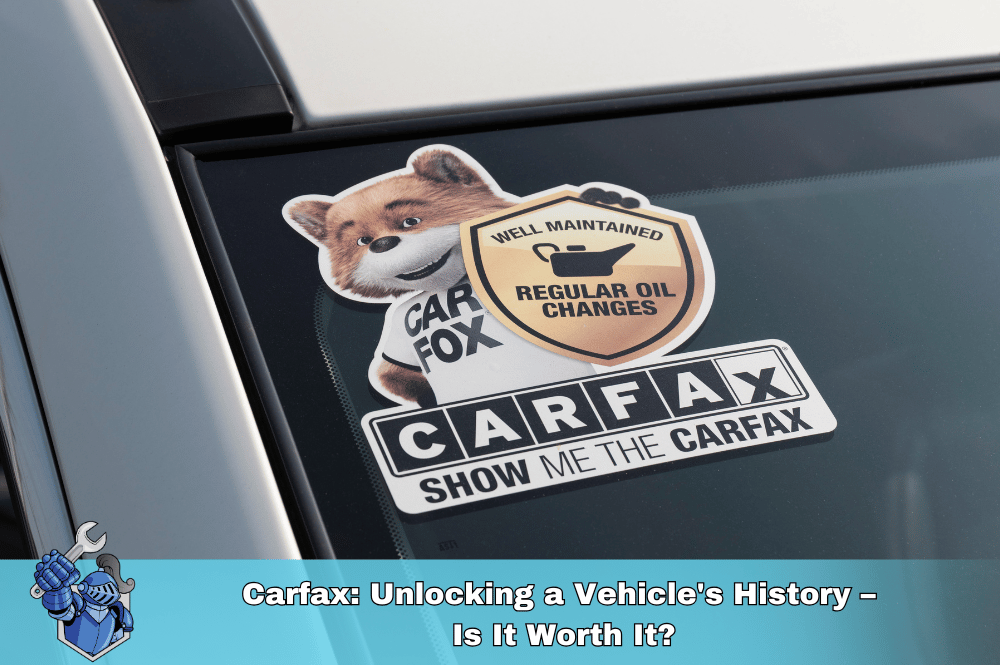 Carfax: Unlocking a Vehicle's History – Is It Worth It?
Carfax: Unlocking a Vehicle's History – Is It Worth It?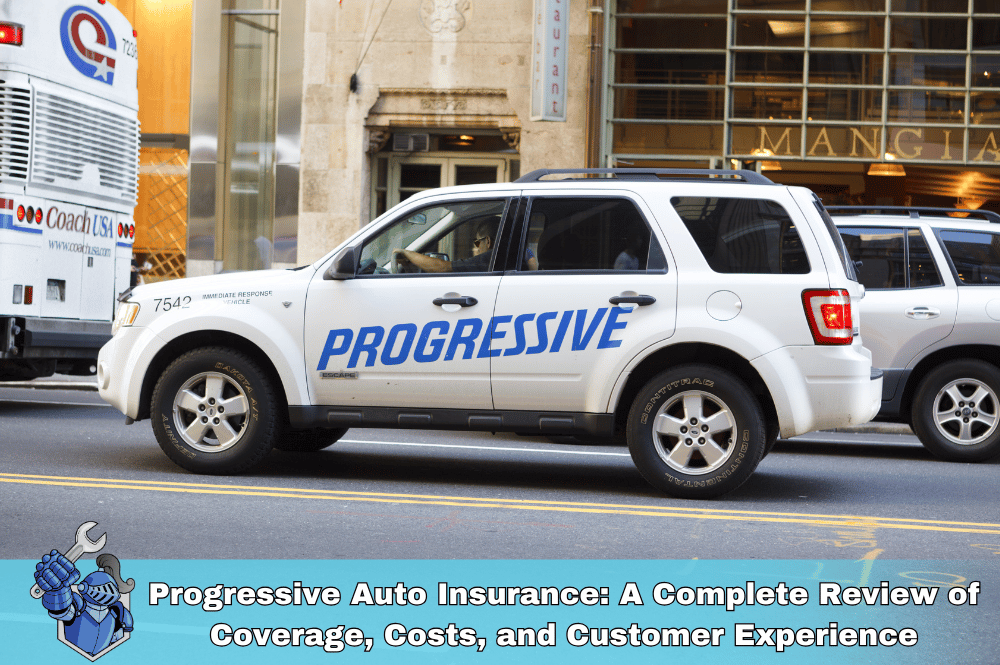 Progressive Auto Insurance: A Complete Review of Coverage, Costs, and Customer Experience
Progressive Auto Insurance: A Complete Review of Coverage, Costs, and Customer Experience The Trusted Choice: A Comprehensive Look at NAPA AutoCare Center Services
The Trusted Choice: A Comprehensive Look at NAPA AutoCare Center Services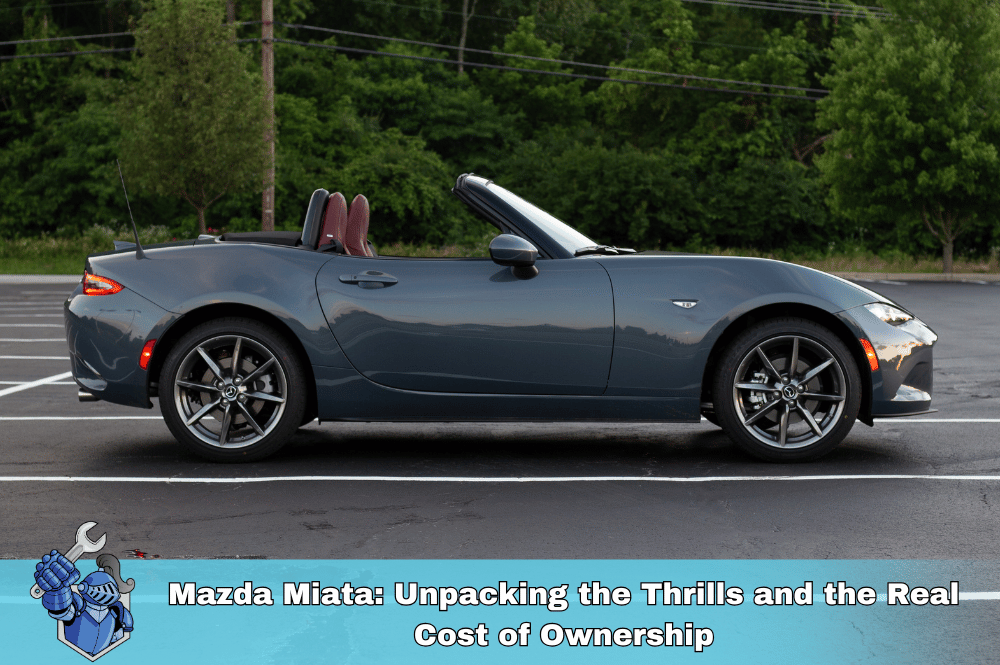 Mazda Miata: Unpacking the Thrills and the Real Cost of Ownership
Mazda Miata: Unpacking the Thrills and the Real Cost of Ownership Online Car Shopping vs. Dealerships: Which Road Should You Take?
Online Car Shopping vs. Dealerships: Which Road Should You Take? The Hidden Risks of Buy Here Pay Here Car Dealerships
The Hidden Risks of Buy Here Pay Here Car Dealerships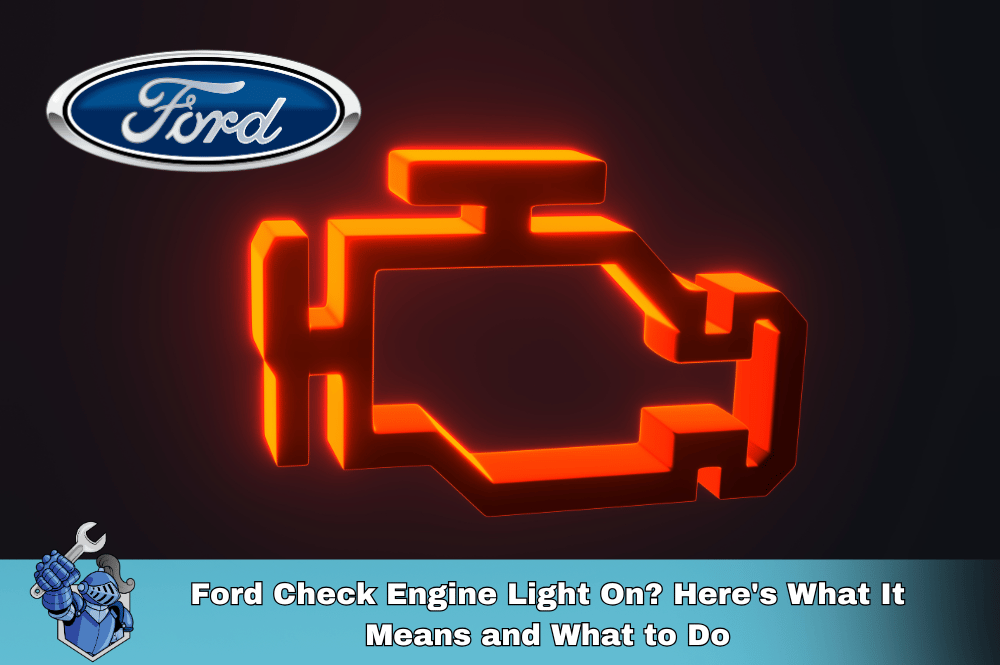 Ford Check Engine Light On? Here's What It Means and What to Do
Ford Check Engine Light On? Here's What It Means and What to Do USAA Auto Insurance Review: The Complete In’s and Out’s (2025 Edition)
USAA Auto Insurance Review: The Complete In’s and Out’s (2025 Edition) Is an AARP Membership Worth It for Drivers?
Is an AARP Membership Worth It for Drivers? The Basics of Car Insurance Deductibles and How They Work
The Basics of Car Insurance Deductibles and How They Work Navigating Bank of America Auto Loans: What You Need to Know
Navigating Bank of America Auto Loans: What You Need to Know Capital One Auto Loans: Your Complete Guide to Financing Your Next Vehicle
Capital One Auto Loans: Your Complete Guide to Financing Your Next Vehicle The Ultimate Guide to Selling Your Car
The Ultimate Guide to Selling Your Car 5 Steps to a Higher Credit Score: Your Guide to Better Auto Loan Rates
5 Steps to a Higher Credit Score: Your Guide to Better Auto Loan Rates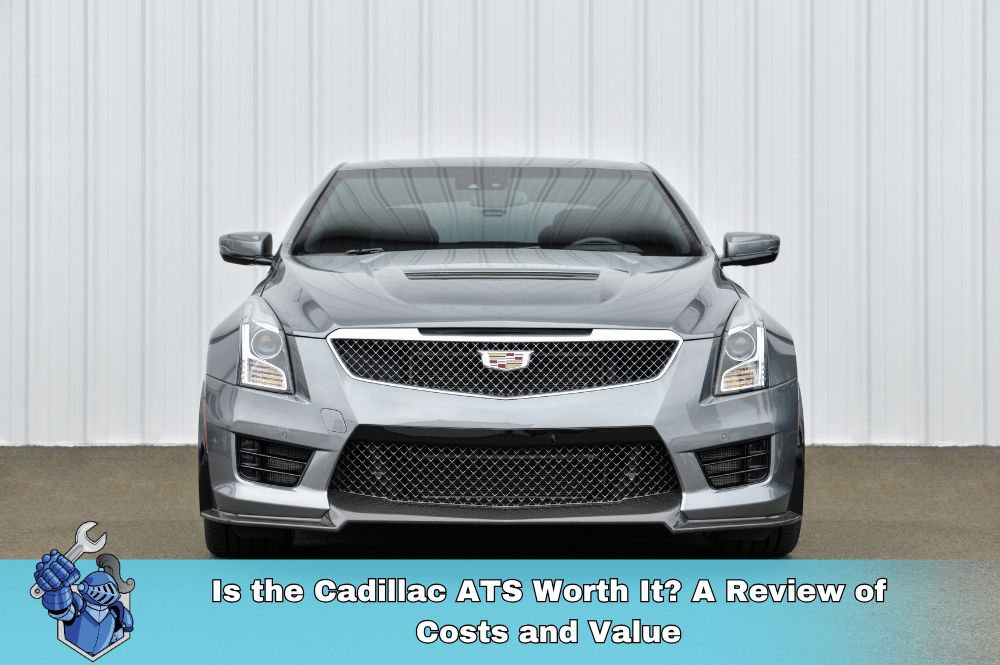 Is the Cadillac ATS Worth It? A Review of Costs and Value
Is the Cadillac ATS Worth It? A Review of Costs and Value The General Auto Insurance: What You Need to Know
The General Auto Insurance: What You Need to Know Nationwide Auto Insurance: 10 Essential Things to Know Before You Buy
Nationwide Auto Insurance: 10 Essential Things to Know Before You Buy Lost Keys? Noble Quote Has You Covered (and More!)
Lost Keys? Noble Quote Has You Covered (and More!) The Digital Garage for Your Dollars: Navigating the World of Trading Apps
The Digital Garage for Your Dollars: Navigating the World of Trading Apps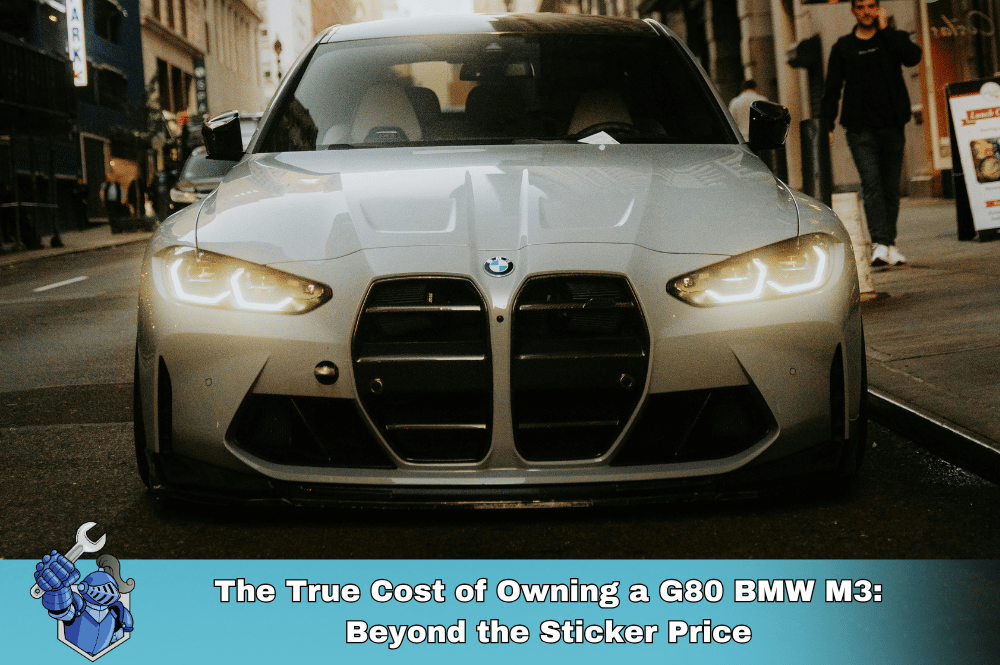 The True Cost of Owning a G80 BMW M3: Beyond the Sticker Price
The True Cost of Owning a G80 BMW M3: Beyond the Sticker Price O'Reilly Auto Parts: Your Comprehensive Guide to Services, Products, and More
O'Reilly Auto Parts: Your Comprehensive Guide to Services, Products, and More Land Cruiser 2025: Unleashed & Uncosted!
Land Cruiser 2025: Unleashed & Uncosted! Noble Quote vs. Amber: Which Automotive Service Offers the Best Value?
Noble Quote vs. Amber: Which Automotive Service Offers the Best Value? Porsche Macan: The REAL Cost of Ownership (2015–2024 Review)
Porsche Macan: The REAL Cost of Ownership (2015–2024 Review) Land Rover Evoque Review (2012–2024): True Cost of Ownership Revealed
Land Rover Evoque Review (2012–2024): True Cost of Ownership Revealed Unlock Lower Rates: Your Guide to Travelers Auto Insurance Discounts
Unlock Lower Rates: Your Guide to Travelers Auto Insurance Discounts Your Car as an NFT? The Future of Automotive Ownership on Ethereum
Your Car as an NFT? The Future of Automotive Ownership on Ethereum Unlock Cheaper Rates: Your Ultimate Guide to State Farm Auto Insurance Discounts
Unlock Cheaper Rates: Your Ultimate Guide to State Farm Auto Insurance Discounts Online Used Car Shopping: What You NEED to Know Before You Buy
Online Used Car Shopping: What You NEED to Know Before You Buy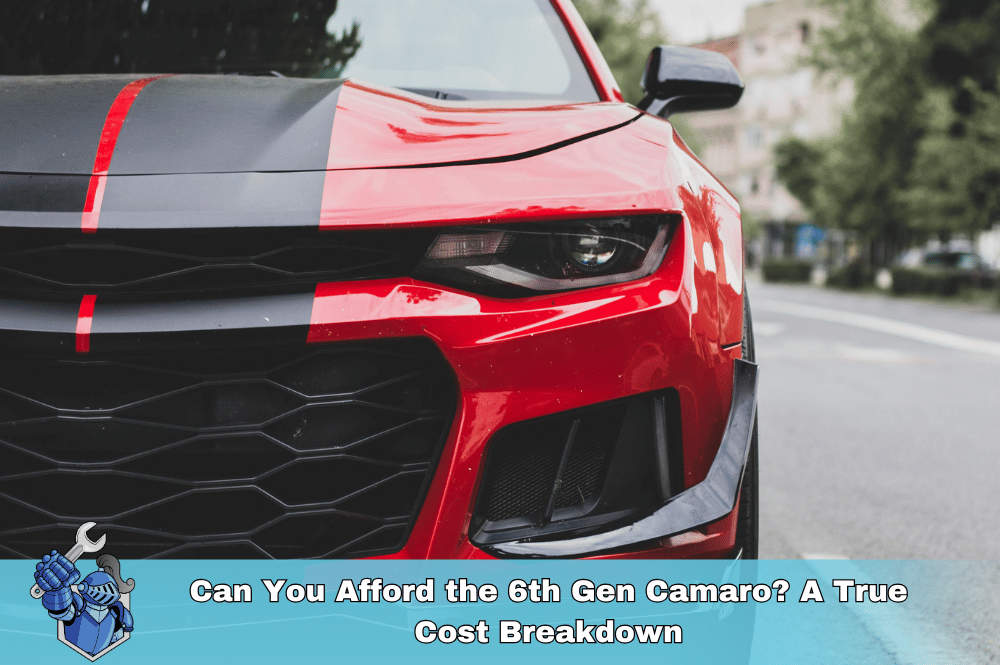 Can You Afford the 6th Gen Camaro? A True Cost Breakdown
Can You Afford the 6th Gen Camaro? A True Cost Breakdown The 7 Hidden Costs of Skipping Your Extended Car Warranty
The 7 Hidden Costs of Skipping Your Extended Car Warranty AutoZone: Your DIY Partner or a Pro's Pit Stop? A Comprehensive Review
AutoZone: Your DIY Partner or a Pro's Pit Stop? A Comprehensive Review Reborn Rugged: Why the Ineos Grenadier is More Than Just an SUV
Reborn Rugged: Why the Ineos Grenadier is More Than Just an SUV Factors Affecting Your Car Insurance Rates: The Ultimate Guide to Understanding Costs
Factors Affecting Your Car Insurance Rates: The Ultimate Guide to Understanding Costs How to Maximize Your Car Trade-In Value: The Ultimate Guide
How to Maximize Your Car Trade-In Value: The Ultimate Guide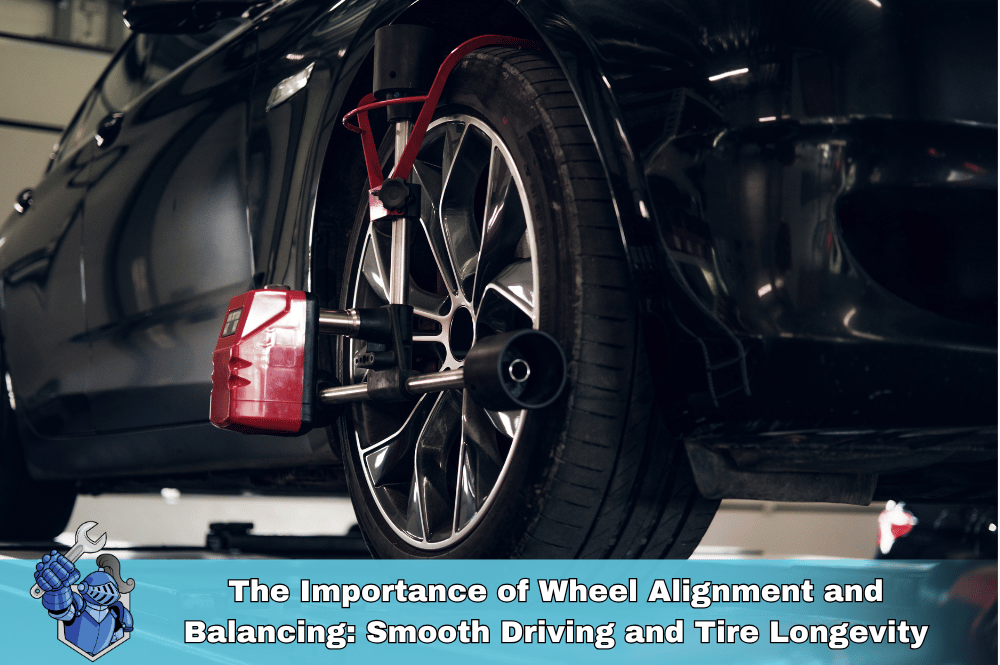 The Importance of Wheel Alignment and Balancing: Smooth Driving and Tire Longevity
The Importance of Wheel Alignment and Balancing: Smooth Driving and Tire Longevity BYD Cars 2025: Your Ultimate Guide to the Full Lineup & Latest Innovations
BYD Cars 2025: Your Ultimate Guide to the Full Lineup & Latest Innovations Don't Miss Out: How to Buy Crypto Before the Next FOMO Wave (2025 Guide)
Don't Miss Out: How to Buy Crypto Before the Next FOMO Wave (2025 Guide)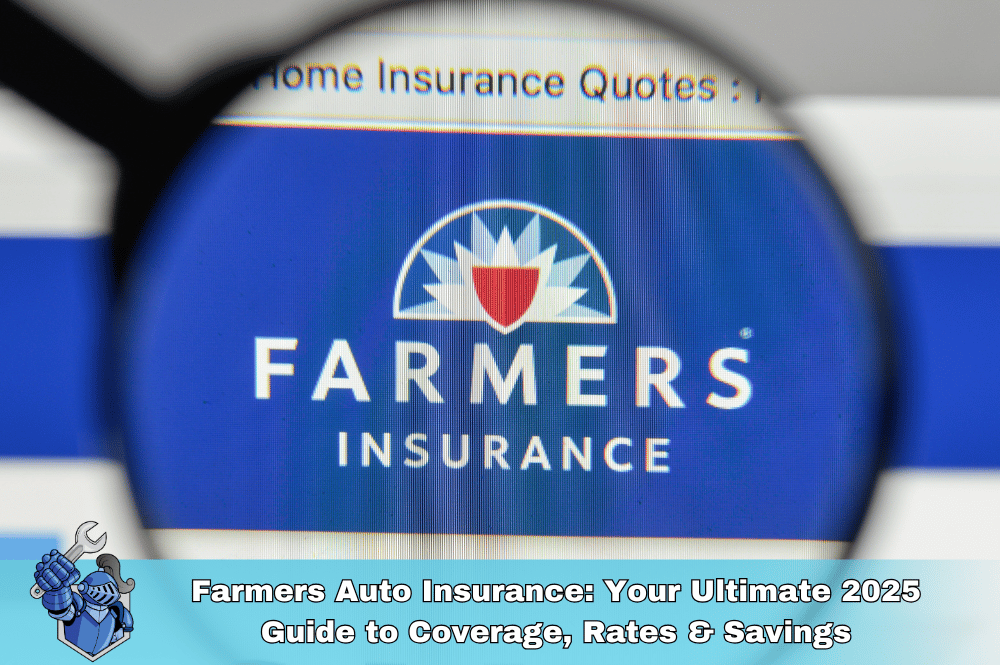 Farmers Auto Insurance: Your Ultimate 2025 Guide to Coverage, Rates & Savings
Farmers Auto Insurance: Your Ultimate 2025 Guide to Coverage, Rates & Savings Brake Pads: The Science of Stopping (How They're Made, What They Do, & Signs of Wear)
Brake Pads: The Science of Stopping (How They're Made, What They Do, & Signs of Wear) Spark Plugs: The Tiny Titans That Ignite Your Engine
Spark Plugs: The Tiny Titans That Ignite Your Engine The Ultimate Showdown: Car Broker vs. DIY Car Buying – Which Path Saves You More?
The Ultimate Showdown: Car Broker vs. DIY Car Buying – Which Path Saves You More?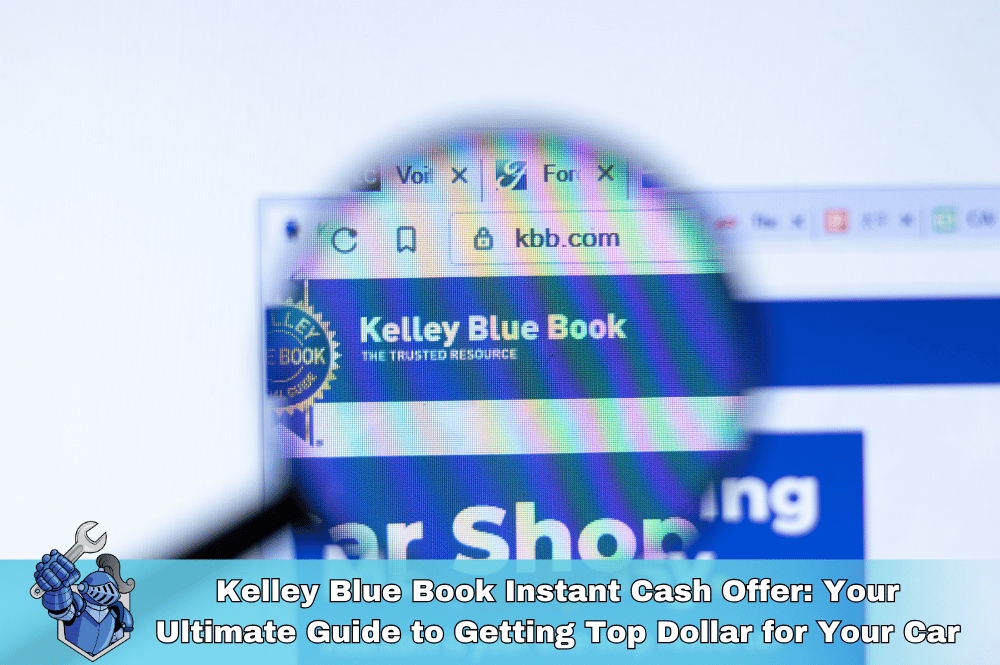 Kelley Blue Book Instant Cash Offer: Your Ultimate Guide to Getting Top Dollar for Your Car
Kelley Blue Book Instant Cash Offer: Your Ultimate Guide to Getting Top Dollar for Your Car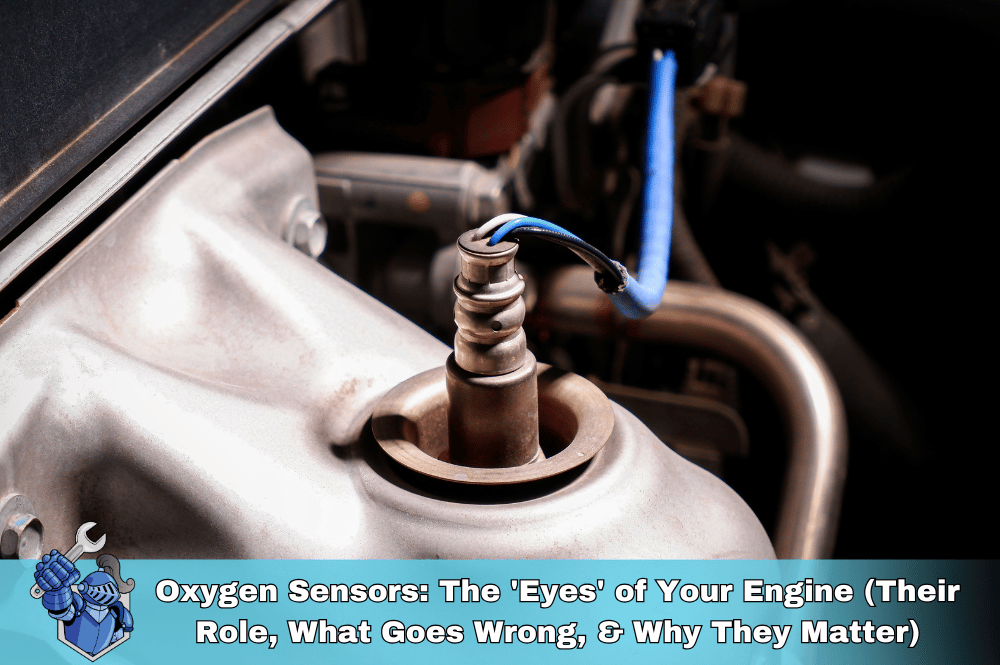 Oxygen Sensors: The 'Eyes' of Your Engine (Their Role, What Goes Wrong, & Why They Matter)
Oxygen Sensors: The 'Eyes' of Your Engine (Their Role, What Goes Wrong, & Why They Matter) Carvana vs. Traditional Dealerships: The Ultimate Showdown for Your Next Car Purchase
Carvana vs. Traditional Dealerships: The Ultimate Showdown for Your Next Car Purchase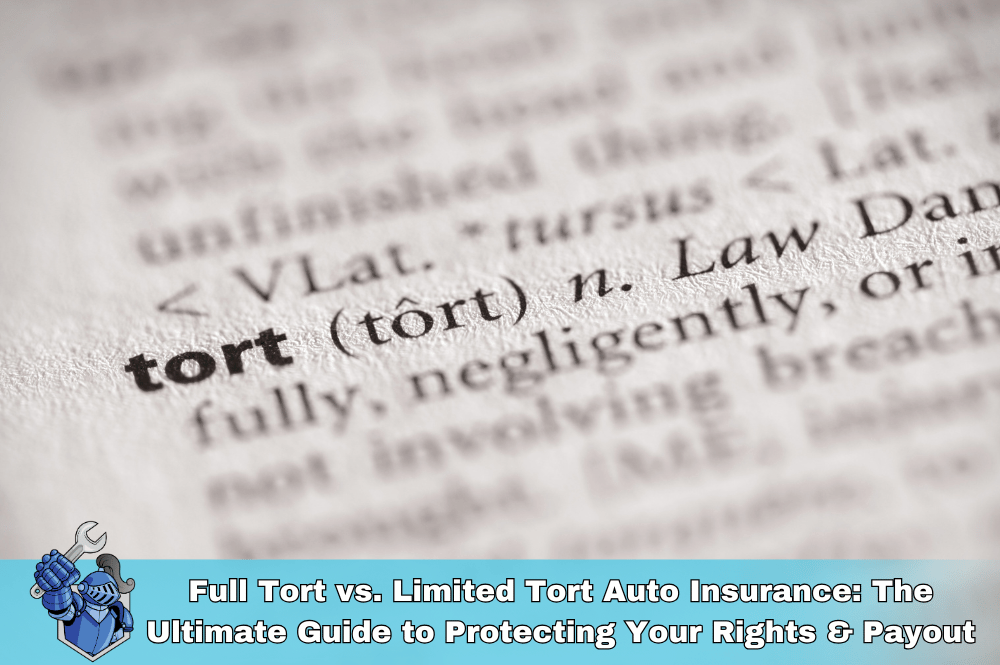 Full Tort vs. Limited Tort Auto Insurance: The Ultimate Guide to Protecting Your Rights & Payout
Full Tort vs. Limited Tort Auto Insurance: The Ultimate Guide to Protecting Your Rights & Payout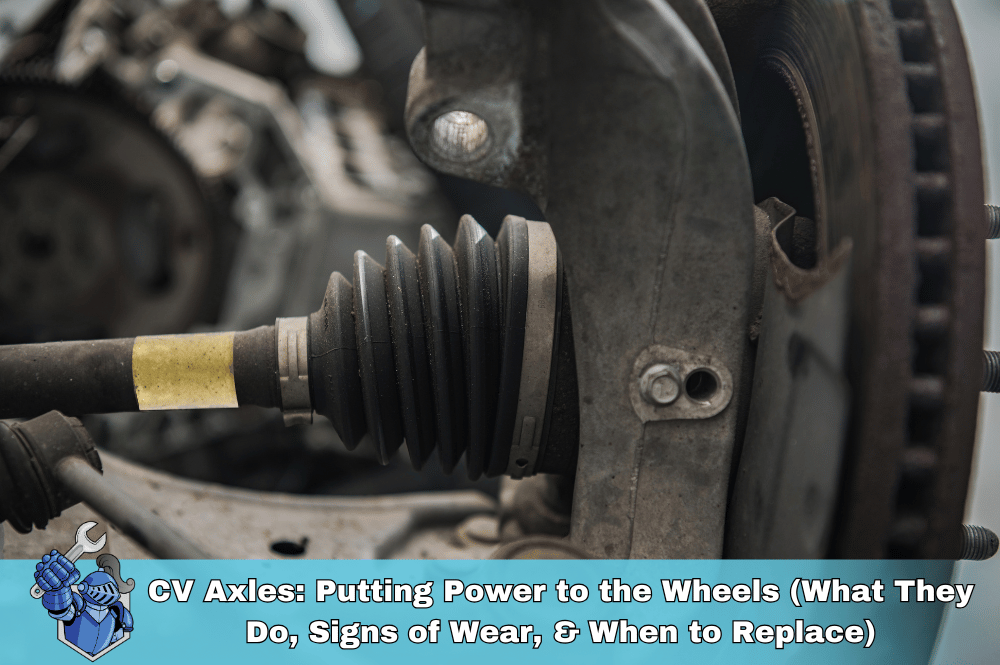 CV Axles: Putting Power to the Wheels (What They Do, Signs of Wear, & When to Replace)
CV Axles: Putting Power to the Wheels (What They Do, Signs of Wear, & When to Replace) BMW M2: The Pure Driving Machine Reborn?
BMW M2: The Pure Driving Machine Reborn? Serpentine Belt: Powering Your Car's Accessories (Its Job, Signs of Wear, & Replacement)
Serpentine Belt: Powering Your Car's Accessories (Its Job, Signs of Wear, & Replacement) Car Coolant Flush: The Ultimate Guide to a Healthy Engine & Extended Vehicle Life
Car Coolant Flush: The Ultimate Guide to a Healthy Engine & Extended Vehicle Life The Reigning Champion: Why the 2025 Ford Ranger is North America's Truck of the Year
The Reigning Champion: Why the 2025 Ford Ranger is North America's Truck of the Year The Mass Airflow Sensor (MAF): Engine's Air Traffic Controller (Function, Symptoms of Failure, & Cleaning)
The Mass Airflow Sensor (MAF): Engine's Air Traffic Controller (Function, Symptoms of Failure, & Cleaning) The Ultimate Truck/SUV Beach Driving Guide: Prep, Safety, & Post-Sand Care
The Ultimate Truck/SUV Beach Driving Guide: Prep, Safety, & Post-Sand Care The Car Computer (ECM/ECU): The Brain of Your Vehicle (Its Functions, Troubleshooting, & Updates)
The Car Computer (ECM/ECU): The Brain of Your Vehicle (Its Functions, Troubleshooting, & Updates) Rideshare Riches: How Much Can YOU Really Earn Driving for Uber & Lyft in 2025?
Rideshare Riches: How Much Can YOU Really Earn Driving for Uber & Lyft in 2025?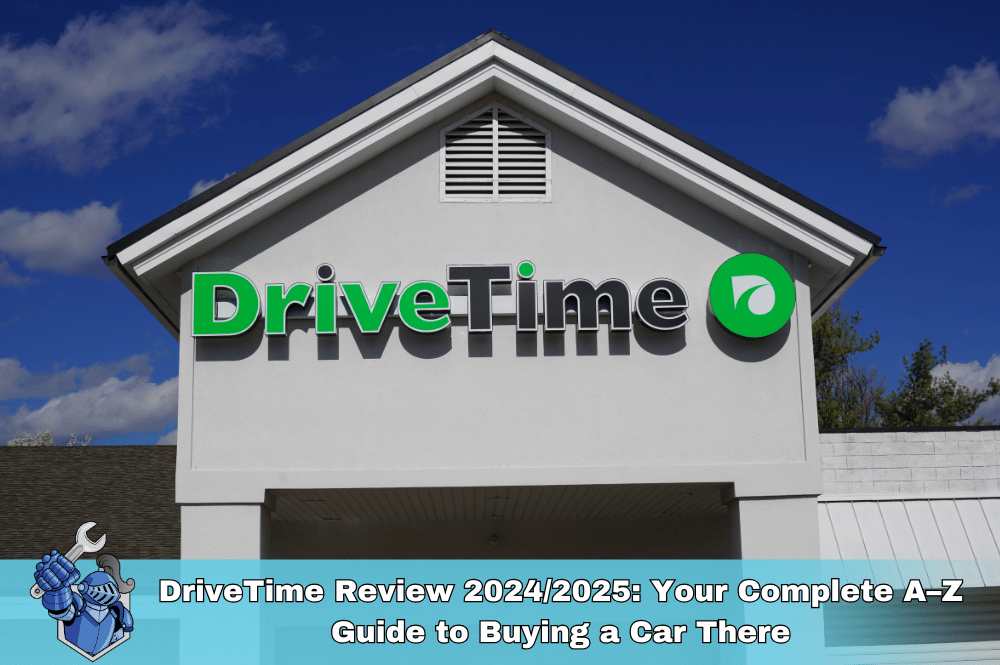 DriveTime Review 2024/2025: Your Complete A–Z Guide to Buying a Car There
DriveTime Review 2024/2025: Your Complete A–Z Guide to Buying a Car There 10 Essential Car Prep Tips for Your Family’s Epic Summer Road Trips (2025 Edition)
10 Essential Car Prep Tips for Your Family’s Epic Summer Road Trips (2025 Edition)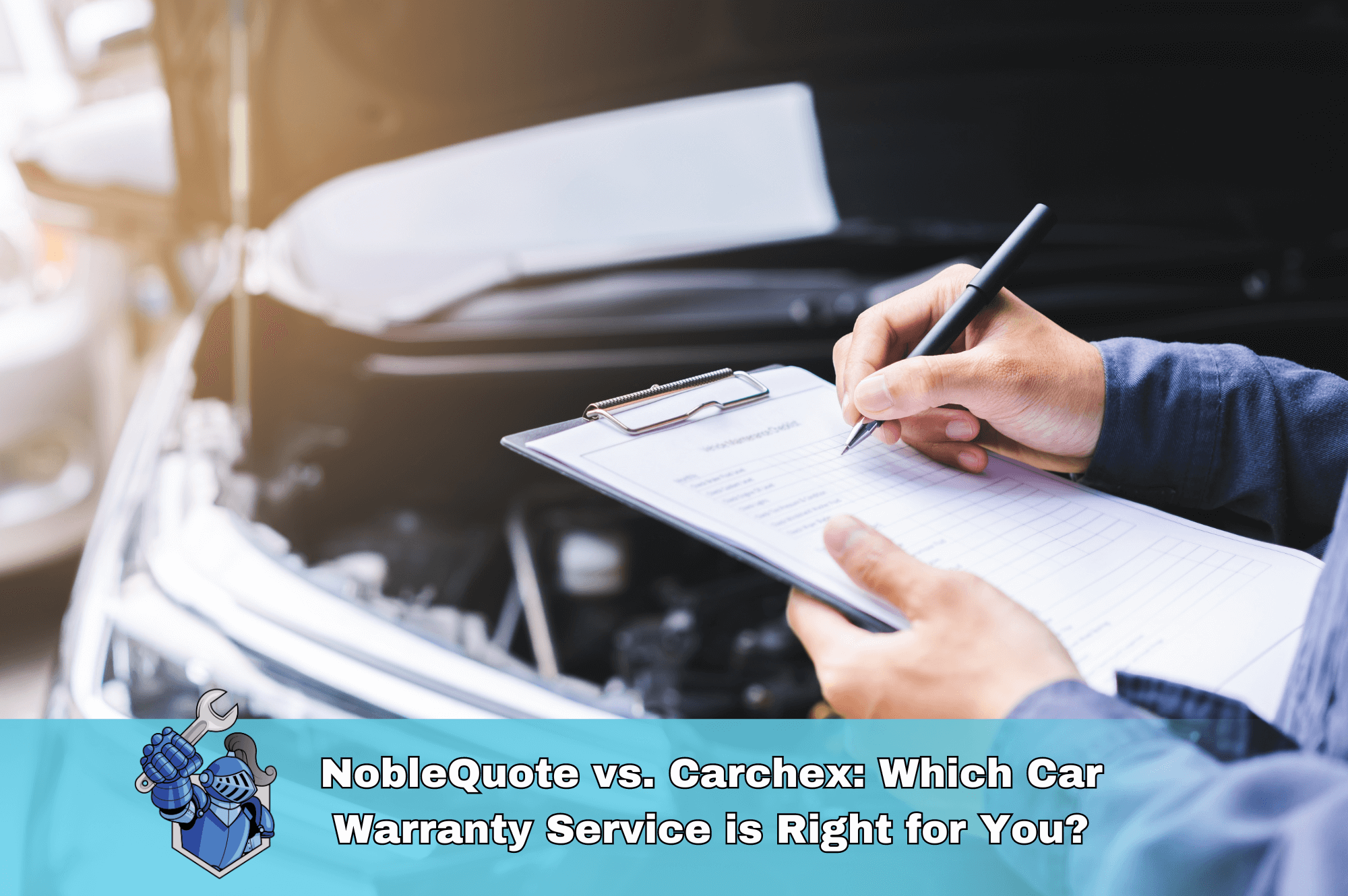 NobleQuote vs. Carchex: Which Car Warranty Service is Right for You?
NobleQuote vs. Carchex: Which Car Warranty Service is Right for You? Beat the Heat Essential Tips to Stay Cool and Protected During Hot Summer Days
Beat the Heat Essential Tips to Stay Cool and Protected During Hot Summer Days The Importance of Car Air Conditioning Maintenance and Why a Vehicle Service Contract is a Smart Investment
The Importance of Car Air Conditioning Maintenance and Why a Vehicle Service Contract is a Smart Investment Extended Warranties for Honda: Comprehensive Guide to Factory and Extended Coverage
Extended Warranties for Honda: Comprehensive Guide to Factory and Extended Coverage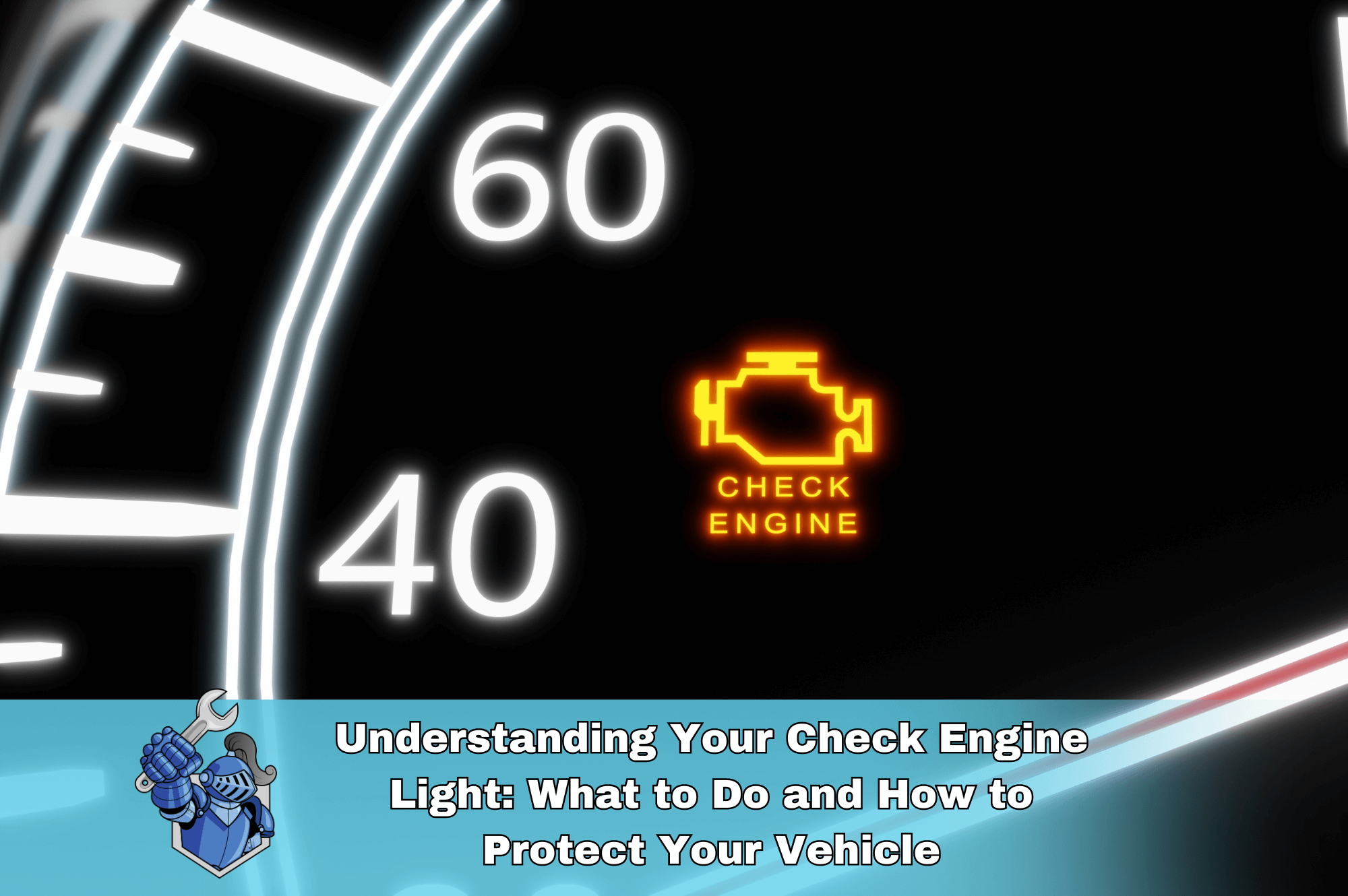 Understanding Your Check Engine Light: What to Do and How to Protect Your Vehicle
Understanding Your Check Engine Light: What to Do and How to Protect Your Vehicle Ford F-150 vs. Chevy Silverado: A Comprehensive Comparison
Ford F-150 vs. Chevy Silverado: A Comprehensive Comparison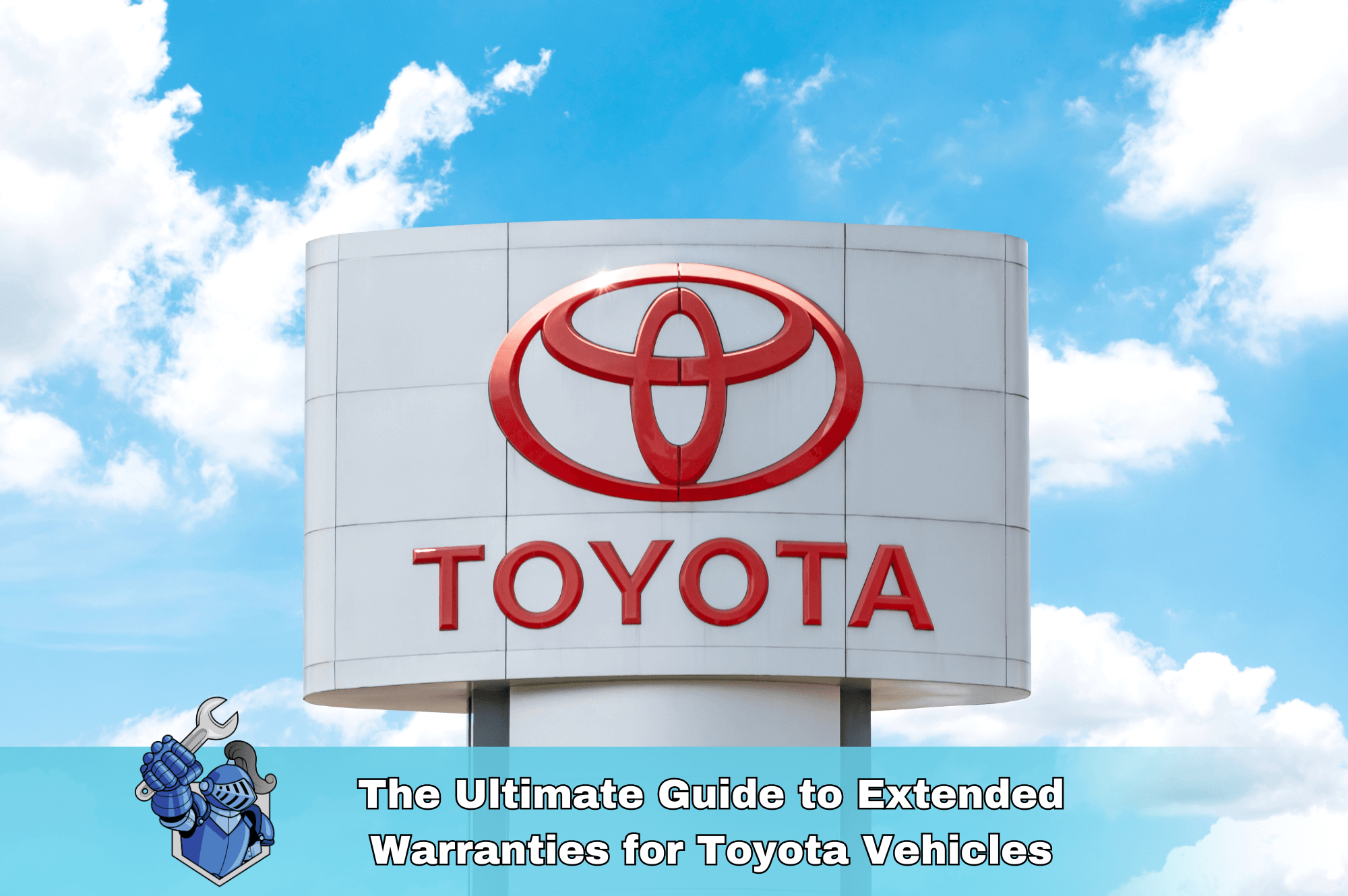 The Ultimate Guide to Extended Warranties for Toyota Vehicles
The Ultimate Guide to Extended Warranties for Toyota Vehicles Feeding America: A Lifeline Against Hunger
Feeding America: A Lifeline Against Hunger Top 10 Used Cars Under $10,000 in 2024
Top 10 Used Cars Under $10,000 in 2024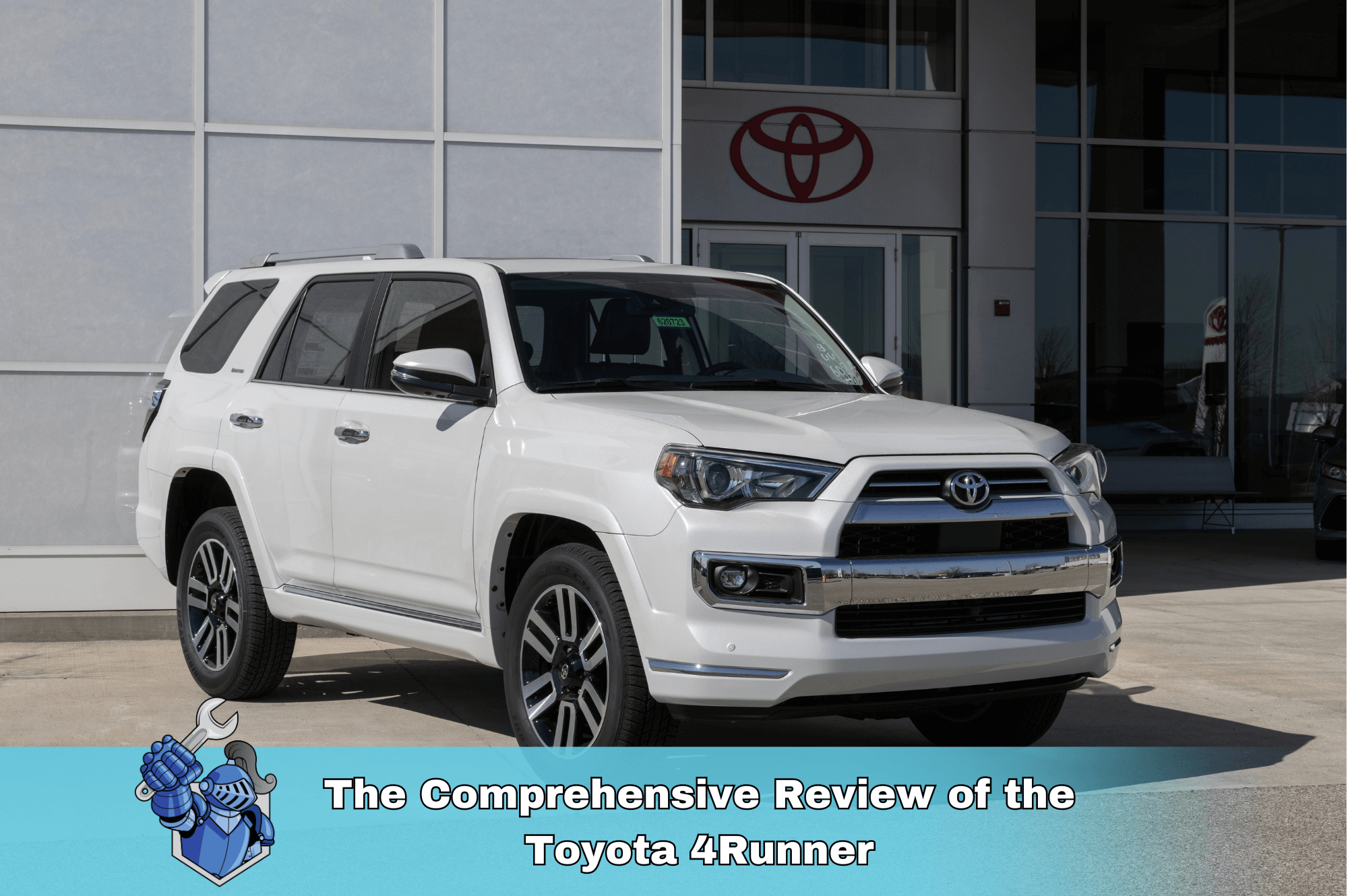 The Comprehensive Review of the Toyota 4Runner
The Comprehensive Review of the Toyota 4Runner Understanding Extended Warranties for Ford Vehicles A Comprehensive Guide
Understanding Extended Warranties for Ford Vehicles A Comprehensive Guide Mastering Your Vehicle's Transmission: Everything You Need to Know
Mastering Your Vehicle's Transmission: Everything You Need to Know Dodge Ram 1500 vs. Toyota Tundra: A Detailed Comparison
Dodge Ram 1500 vs. Toyota Tundra: A Detailed Comparison NobleQuote vs. Concord Auto Protect: A Detailed Comparison
NobleQuote vs. Concord Auto Protect: A Detailed Comparison Comprehensive Review of the Honda Accord: Why It’s a Top Choice for Drivers
Comprehensive Review of the Honda Accord: Why It’s a Top Choice for Drivers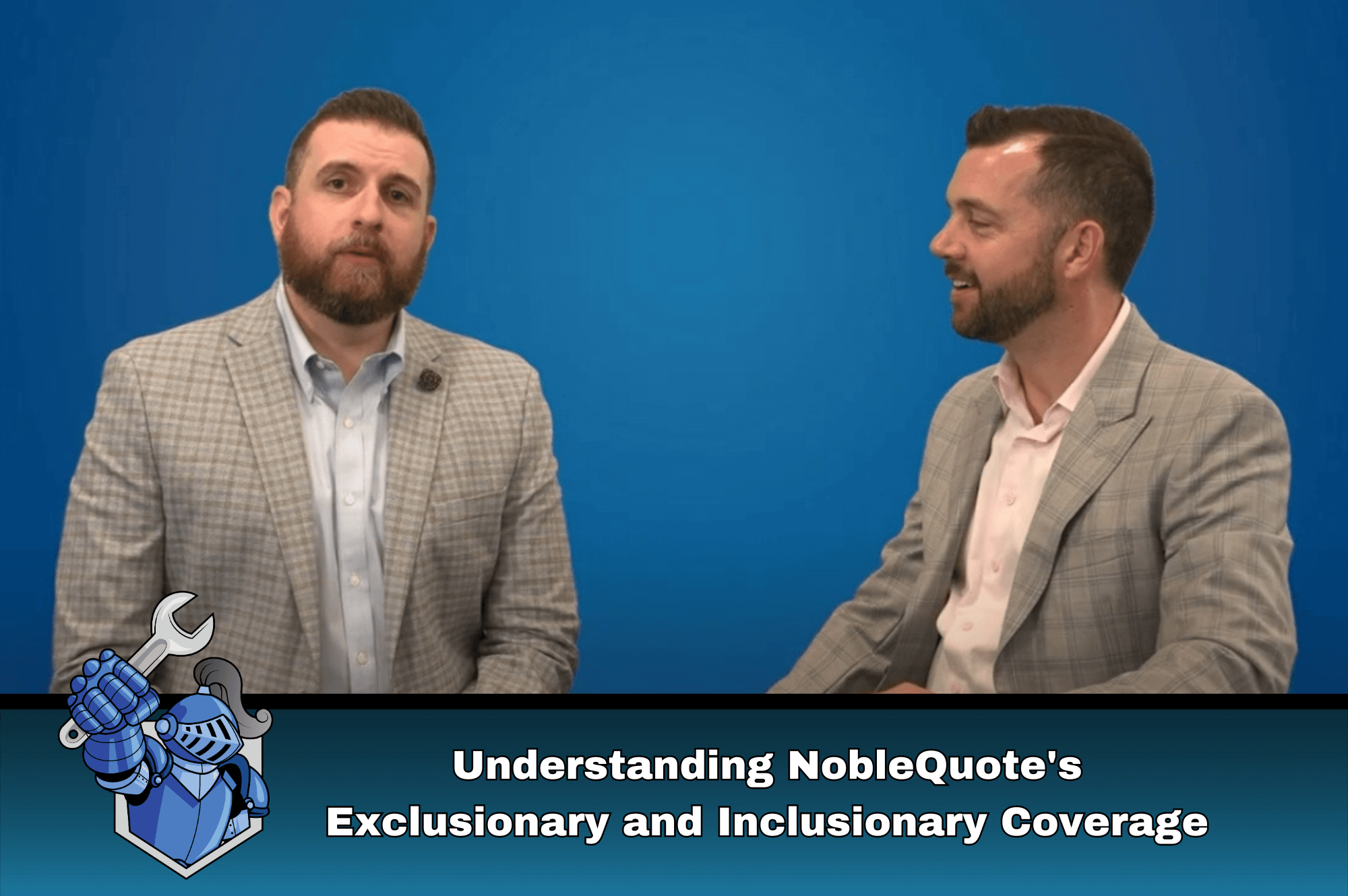 Understanding Exclusionary vs. Inclusionary Vehicle Breakdown Protection
Understanding Exclusionary vs. Inclusionary Vehicle Breakdown Protection The Ultimate Guide to Vehicle Tire Pressure
The Ultimate Guide to Vehicle Tire Pressure Protect Your Nissan with an Extended Warranty: Everything You Need to Know
Protect Your Nissan with an Extended Warranty: Everything You Need to Know The Ultimate Guide to Vehicle Suspension: Components, Wear, and Replacement
The Ultimate Guide to Vehicle Suspension: Components, Wear, and Replacement The Ultimate Guide to Automotive Engine Care
The Ultimate Guide to Automotive Engine Care Unveiling the Toyota Land Cruiser: A Comprehensive Review
Unveiling the Toyota Land Cruiser: A Comprehensive Review Top 10 Tips for Car Battery Health and Replacement
Top 10 Tips for Car Battery Health and Replacement NobleQuote: Proudly Consumer Affairs Accredited
NobleQuote: Proudly Consumer Affairs Accredited Benefits of Hybrid Vehicles: Are They Worth It
Benefits of Hybrid Vehicles: Are They Worth It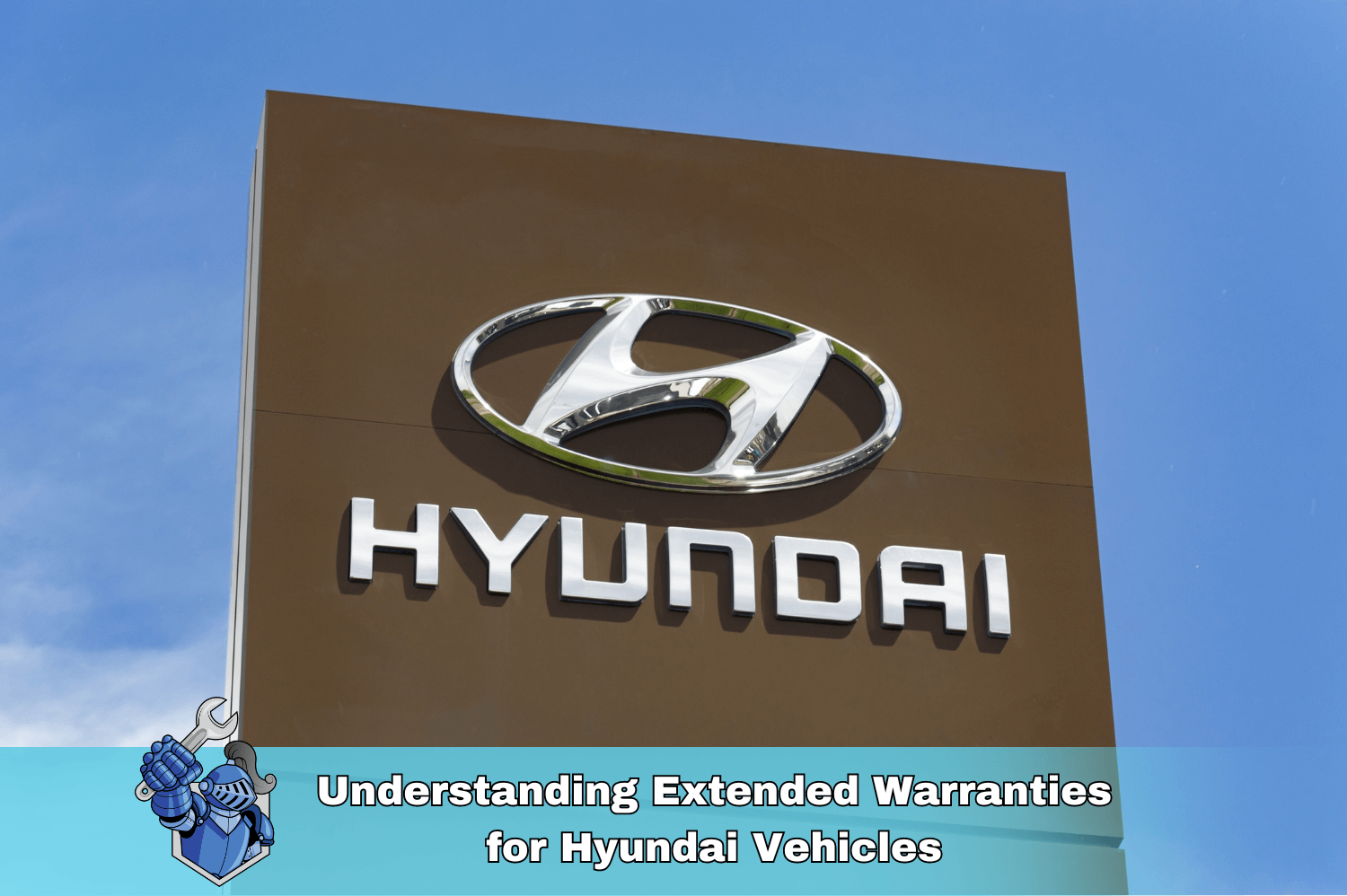 Understanding Extended Warranties for Hyundai Vehicles
Understanding Extended Warranties for Hyundai Vehicles The Ultimate Guide to Car Tires: Everything You Need to Know
The Ultimate Guide to Car Tires: Everything You Need to Know Comprehensive Review of the Nissan Altima: A Reliable Mid-Size Sedan
Comprehensive Review of the Nissan Altima: A Reliable Mid-Size Sedan Supporting Meals on Wheels NobleQuote's Commitment to Community Well-being
Supporting Meals on Wheels NobleQuote's Commitment to Community Well-being The Pros of an Extended Warranty: Why It’s Worth the Investment
The Pros of an Extended Warranty: Why It’s Worth the Investment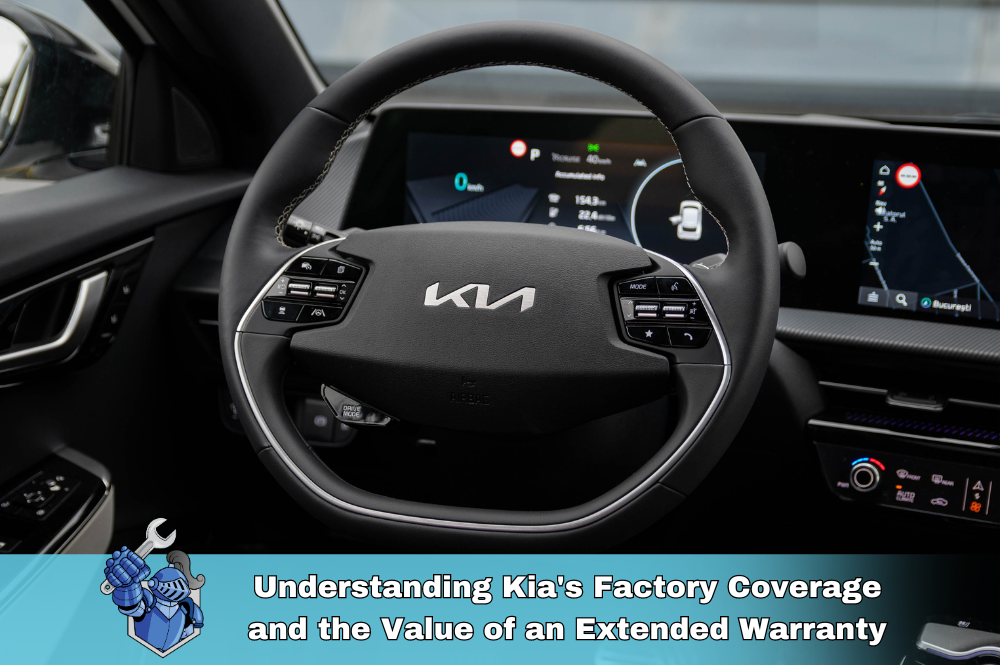 Understanding Kia's Factory Coverage and the Value of an Extended Warranty
Understanding Kia's Factory Coverage and the Value of an Extended Warranty How Much Does a Car Warranty Cost? A Comprehensive Guide
How Much Does a Car Warranty Cost? A Comprehensive Guide The True Cost of Maintaining a Toyota: Is It Really as Affordable as You Think?
The True Cost of Maintaining a Toyota: Is It Really as Affordable as You Think? The Importance of Choosing the Right Fuel for Your Vehicle: Why It Matters and How It Affects Your Auto Warranty
The Importance of Choosing the Right Fuel for Your Vehicle: Why It Matters and How It Affects Your Auto Warranty Toyota FJ Cruiser: A Comprehensive Review
Toyota FJ Cruiser: A Comprehensive Review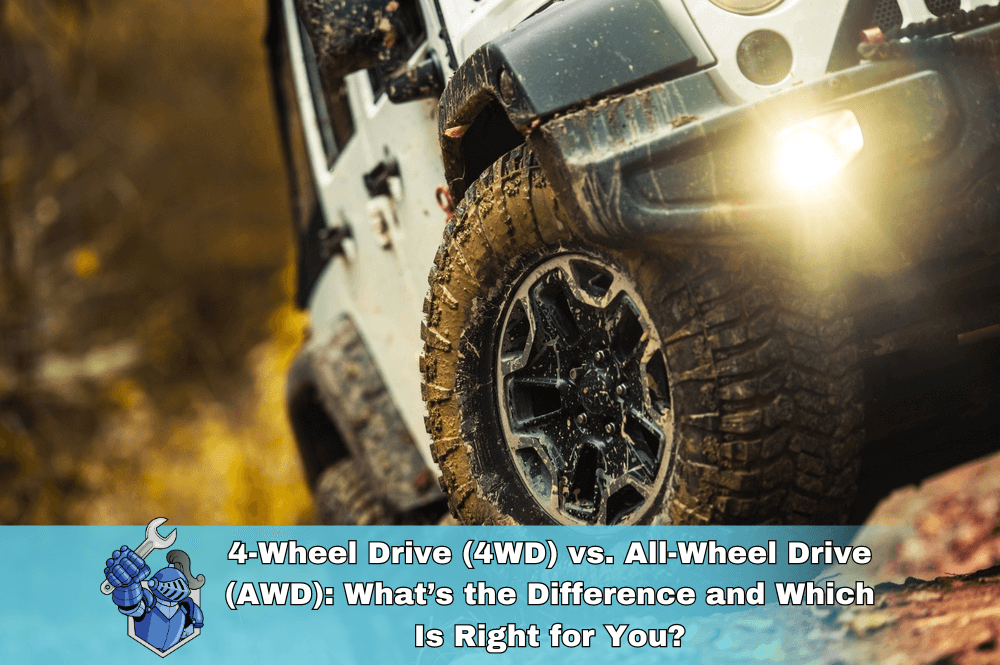 4-Wheel Drive 4WD vs All-Wheel Drive AWD: What’s the Difference and Which Is Right for You?
4-Wheel Drive 4WD vs All-Wheel Drive AWD: What’s the Difference and Which Is Right for You?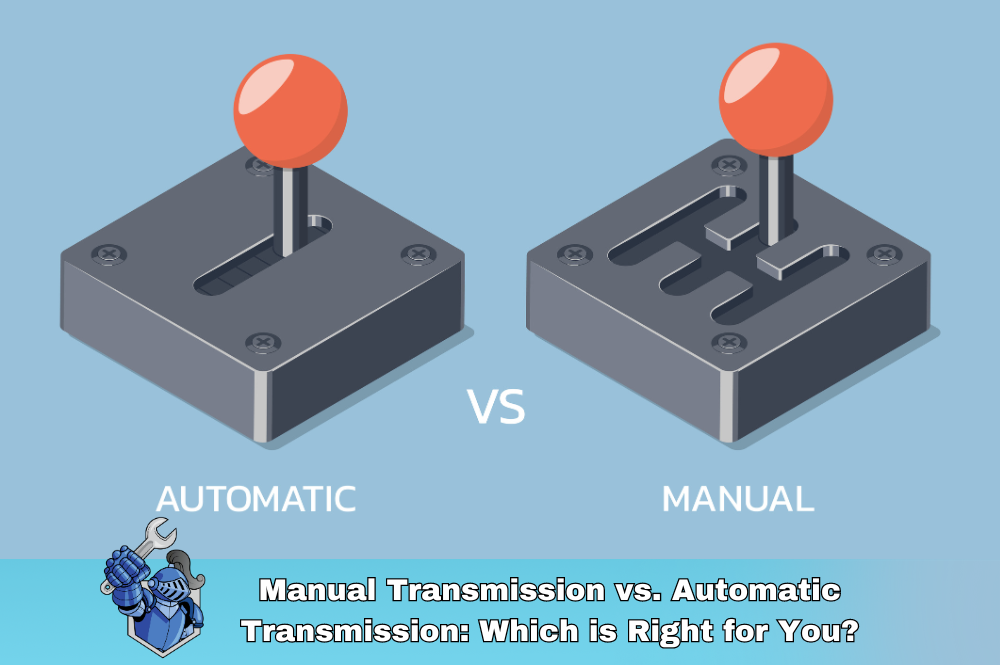 Manual Transmission vs. Automatic Transmission: Which is Right for You?
Manual Transmission vs. Automatic Transmission: Which is Right for You? Understanding and Protecting Electric Vehicle Batteries: A Comprehensive Guide
Understanding and Protecting Electric Vehicle Batteries: A Comprehensive Guide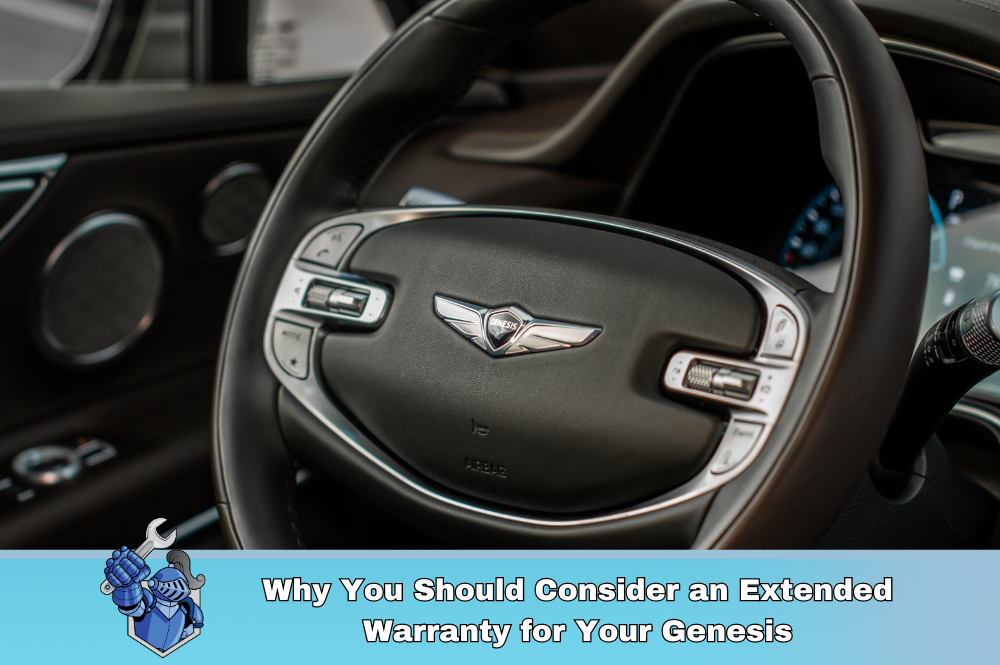 Why You Should Consider an Extended Warranty for Your Genesis
Why You Should Consider an Extended Warranty for Your Genesis Understanding Car Starters: Common Issues, Repair Costs, and How to Protect Your Vehicle
Understanding Car Starters: Common Issues, Repair Costs, and How to Protect Your Vehicle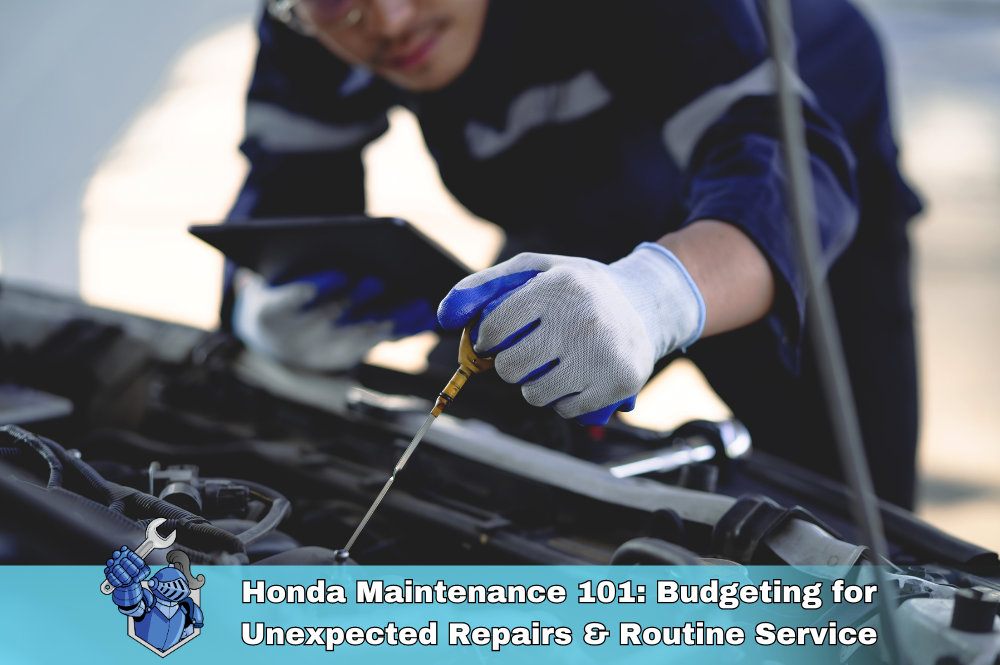 Honda Maintenance 101: Budgeting for Unexpected Repairs & Routine Service
Honda Maintenance 101: Budgeting for Unexpected Repairs & Routine Service Top Reasons Your Car Radiator Might Fail and How to Prevent Costly Repairs
Top Reasons Your Car Radiator Might Fail and How to Prevent Costly Repairs The Ultimate Guide to Motor Oil: Types, Benefits, and How to Change It
The Ultimate Guide to Motor Oil: Types, Benefits, and How to Change It Keep Your Engine Cool: The Must Have Guide to Car and Truck Water Pumps
Keep Your Engine Cool: The Must Have Guide to Car and Truck Water Pumps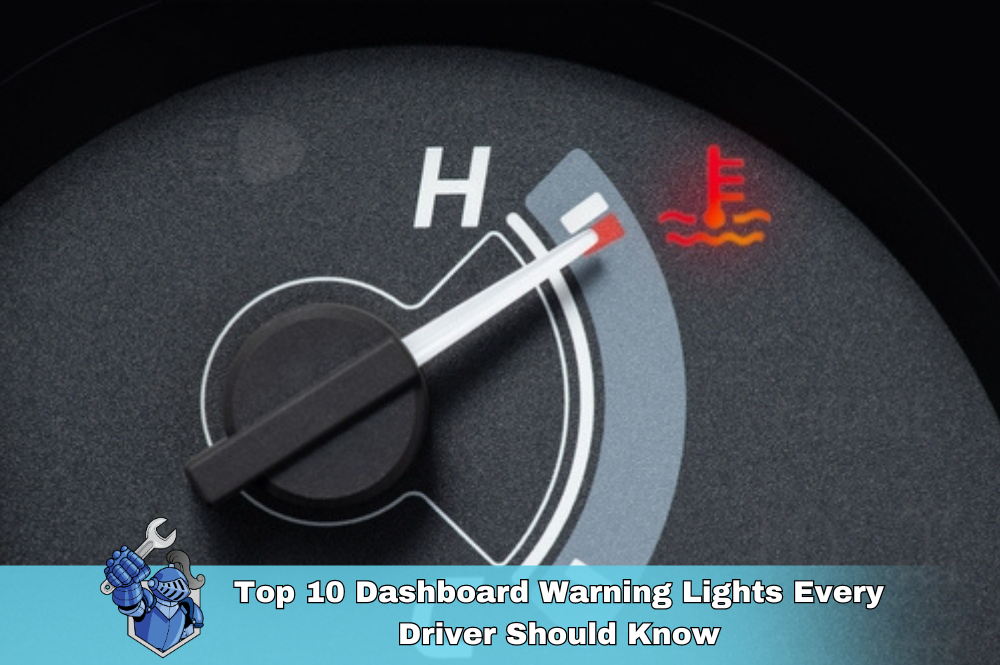 Top 10 Dashboard Warning Lights Every Driver Should Know
Top 10 Dashboard Warning Lights Every Driver Should Know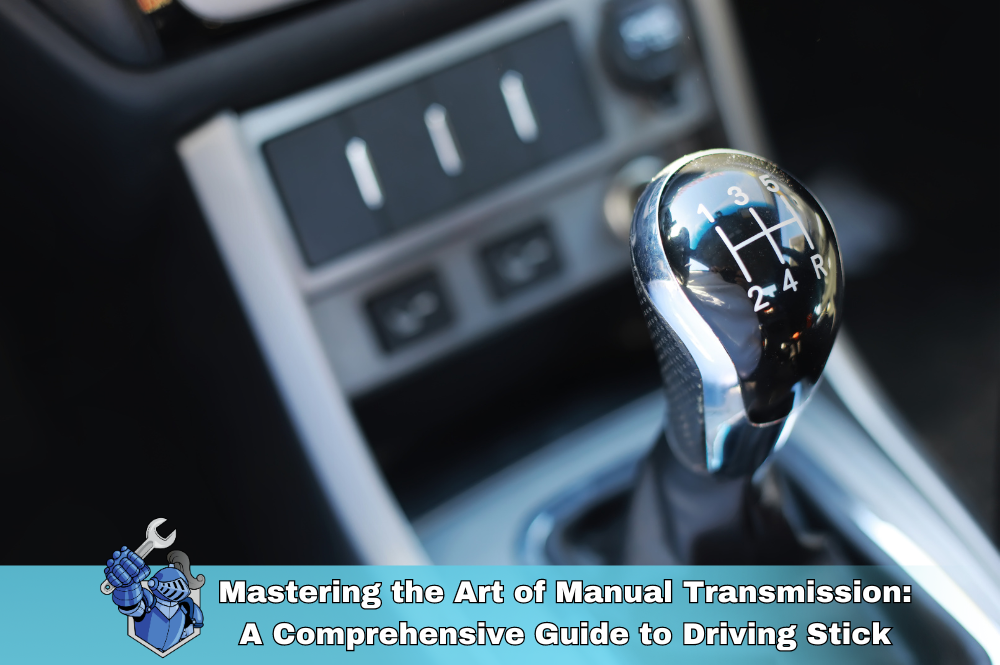 Mastering the Art of Manual Transmission: A Comprehensive Guide to Driving Stick
Mastering the Art of Manual Transmission: A Comprehensive Guide to Driving Stick Famous Actors Who Have a Need for Speed: Hollywood's Race Car Drivers
Famous Actors Who Have a Need for Speed: Hollywood's Race Car Drivers Comprehensive Review of the Honda Pilot: Your Ultimate Guide
Comprehensive Review of the Honda Pilot: Your Ultimate Guide Choosing the Right Brake Pads: A Complete Guide to Safety and Performance
Choosing the Right Brake Pads: A Complete Guide to Safety and Performance Top 5 Reasons Your Transmission May Be Failing: Expert Tips and Solutions
Top 5 Reasons Your Transmission May Be Failing: Expert Tips and Solutions Supporting a Worthy Cause: NobleQuote's Partnership with Alex's Lemonade Stand Foundation
Supporting a Worthy Cause: NobleQuote's Partnership with Alex's Lemonade Stand Foundation The Essential Guide to Car Maintenance: How to Keep Your Vehicle Running Smoothly
The Essential Guide to Car Maintenance: How to Keep Your Vehicle Running Smoothly Everything You Need to Know About Chevy Extended Warranties
Everything You Need to Know About Chevy Extended Warranties How to Replace Your Car Key Battery Tips Costs and More
How to Replace Your Car Key Battery Tips Costs and More Are Lift Kits Covered Under Your Truck’s Extended Warranty? Key Info for Lifted Trucks
Are Lift Kits Covered Under Your Truck’s Extended Warranty? Key Info for Lifted Trucks 8 Essential Tips to Avoid Overpaying at the Auto Repair Shop
8 Essential Tips to Avoid Overpaying at the Auto Repair Shop Subaru Outback Review: Everything You Need to Know About This Versatile SUV
Subaru Outback Review: Everything You Need to Know About This Versatile SUV Alternator Failing? Repair Costs, Symptoms, and Why You Need Coverage
Alternator Failing? Repair Costs, Symptoms, and Why You Need Coverage Toyota Tacoma: The Definitive Buyer’s Guide & In-Depth Review
Toyota Tacoma: The Definitive Buyer’s Guide & In-Depth Review How to Choose the Best First Car for Your Teen in 2024: A Parent's Guide
How to Choose the Best First Car for Your Teen in 2024: A Parent's Guide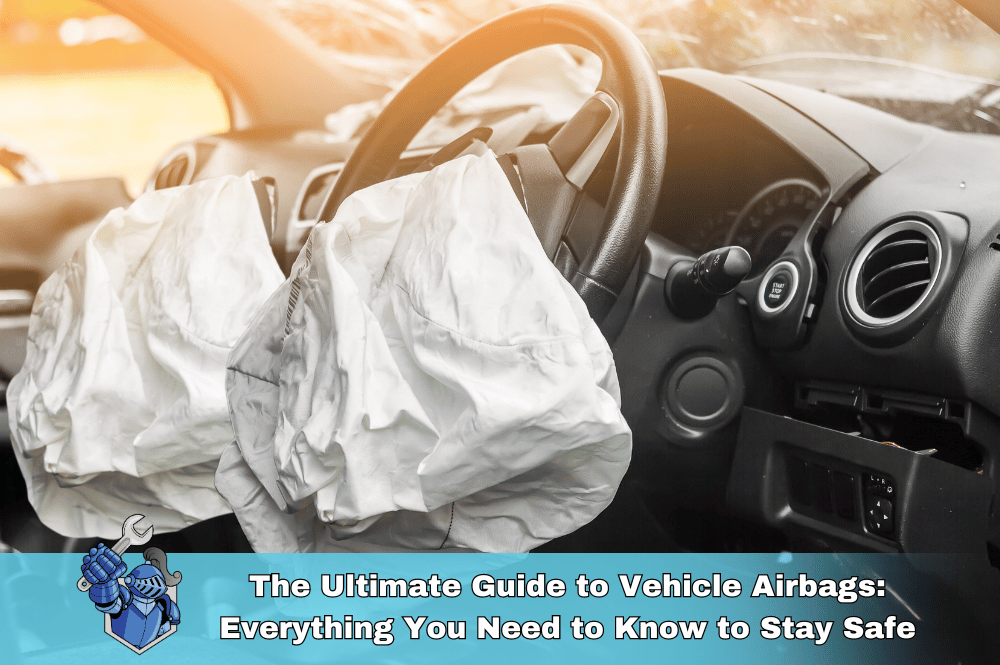 The Ultimate Guide to Vehicle Airbags: Everything You Need to Know to Stay Safe
The Ultimate Guide to Vehicle Airbags: Everything You Need to Know to Stay Safe Stranded on the Sidelines: Your Essential Guide to Roadside Breakdowns & Staying Safe
Stranded on the Sidelines: Your Essential Guide to Roadside Breakdowns & Staying Safe Dealer vs. Local Mechanic: Where Should You Take Your Car for Repairs?
Dealer vs. Local Mechanic: Where Should You Take Your Car for Repairs? The DIY Mechanic's Arsenal: Essential Tools for Basic Car Repairs
The DIY Mechanic's Arsenal: Essential Tools for Basic Car Repairs The Ultimate Guide to Automotive Wraps: Everything You Need to Know
The Ultimate Guide to Automotive Wraps: Everything You Need to Know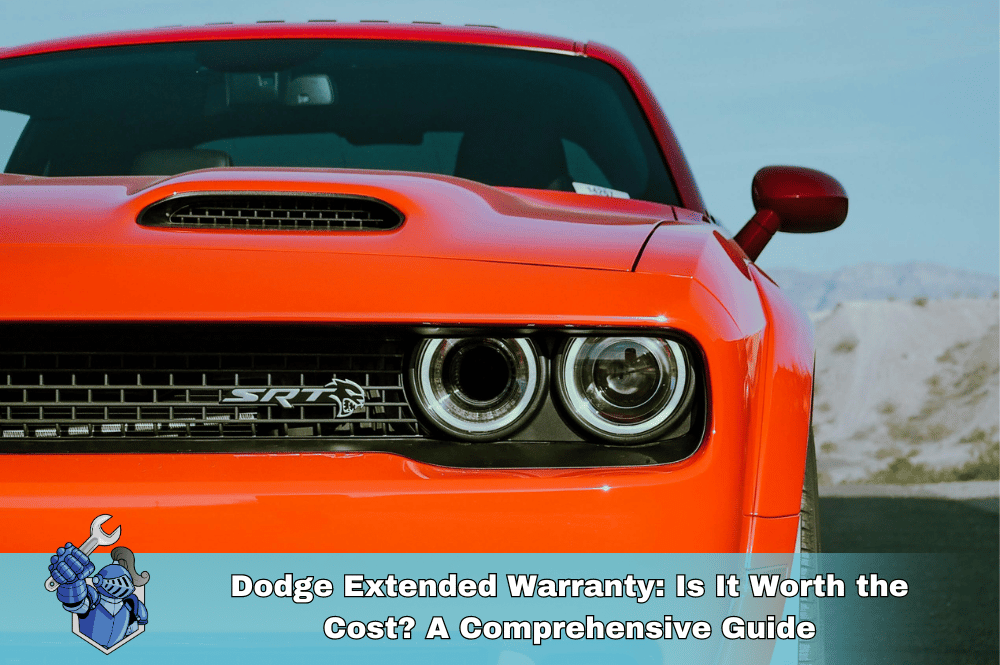 Dodge Extended Warranty: Is It Worth the Cost? A Comprehensive Guide
Dodge Extended Warranty: Is It Worth the Cost? A Comprehensive Guide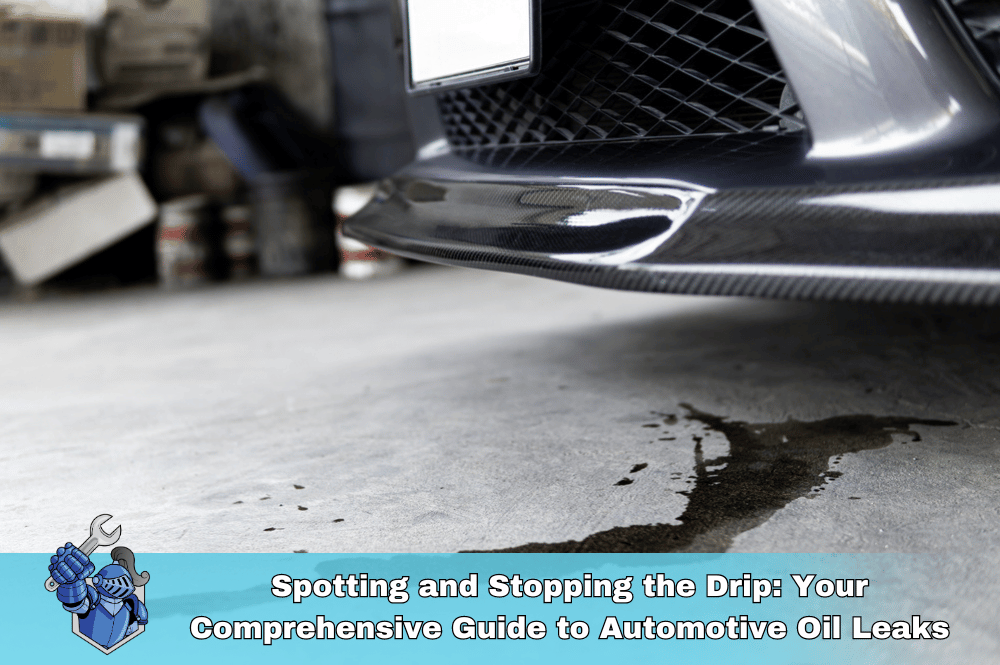 Spotting and Stopping the Drip: Your Comprehensive Guide to Automotive Oil Leaks
Spotting and Stopping the Drip: Your Comprehensive Guide to Automotive Oil Leaks Electric vs. Gas Cars: The Ultimate Showdown for the Future of Driving
Electric vs. Gas Cars: The Ultimate Showdown for the Future of Driving 2024 BMW 3 Series Review: Is it Still the Ultimate Driving Machine?
2024 BMW 3 Series Review: Is it Still the Ultimate Driving Machine?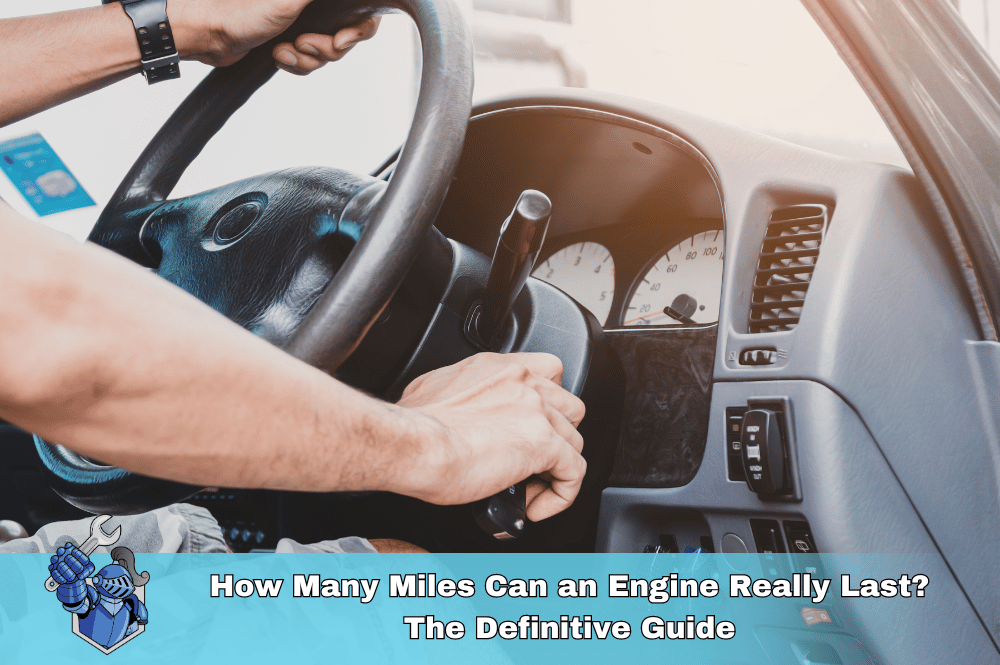 How Many Miles Can an Engine Really Last? The Definitive Guide
How Many Miles Can an Engine Really Last? The Definitive Guide The Ultimate New Driver's Guide: Everything You Need to Know to Hit the Road with Confidence
The Ultimate New Driver's Guide: Everything You Need to Know to Hit the Road with Confidence Revving Up the Excitement: Unveiling the Magic of Disney Pixar's 'Cars'
Revving Up the Excitement: Unveiling the Magic of Disney Pixar's 'Cars' Exhaust Problems? Mufflers, Catalytic Converters, & Replacement Solutions
Exhaust Problems? Mufflers, Catalytic Converters, & Replacement Solutions Rules of the Road: Your Ultimate Guide to Safe Driving
Rules of the Road: Your Ultimate Guide to Safe Driving Is the Ford Explorer Reliable? What Owners Need to Know
Is the Ford Explorer Reliable? What Owners Need to Know Ford Mustang: A Guide to Popular Models & Years (1964-Present)
Ford Mustang: A Guide to Popular Models & Years (1964-Present) What is an ASE Certified Mechanic? (And Why Should You Care)
What is an ASE Certified Mechanic? (And Why Should You Care) Looking for the Perfect Gift for a Car Enthusiast? Try These 10 Puzzles
Looking for the Perfect Gift for a Car Enthusiast? Try These 10 Puzzles Hope for the Warriors: Standing Strong for Our Veterans and Military Families
Hope for the Warriors: Standing Strong for Our Veterans and Military Families Shifting Gears: A Deep Dive into Extended Warranties for Automatic and Manual Transmissions
Shifting Gears: A Deep Dive into Extended Warranties for Automatic and Manual Transmissions Ford Bronco: A Legend Reborn – Explore its Wild History & Modern Muscle
Ford Bronco: A Legend Reborn – Explore its Wild History & Modern Muscle 7 Reasons Why the Chevrolet Chevelle Was More Than Just a Pretty Face
7 Reasons Why the Chevrolet Chevelle Was More Than Just a Pretty Face Should You Buy a Truck? The Ultimate Pros and Cons List
Should You Buy a Truck? The Ultimate Pros and Cons List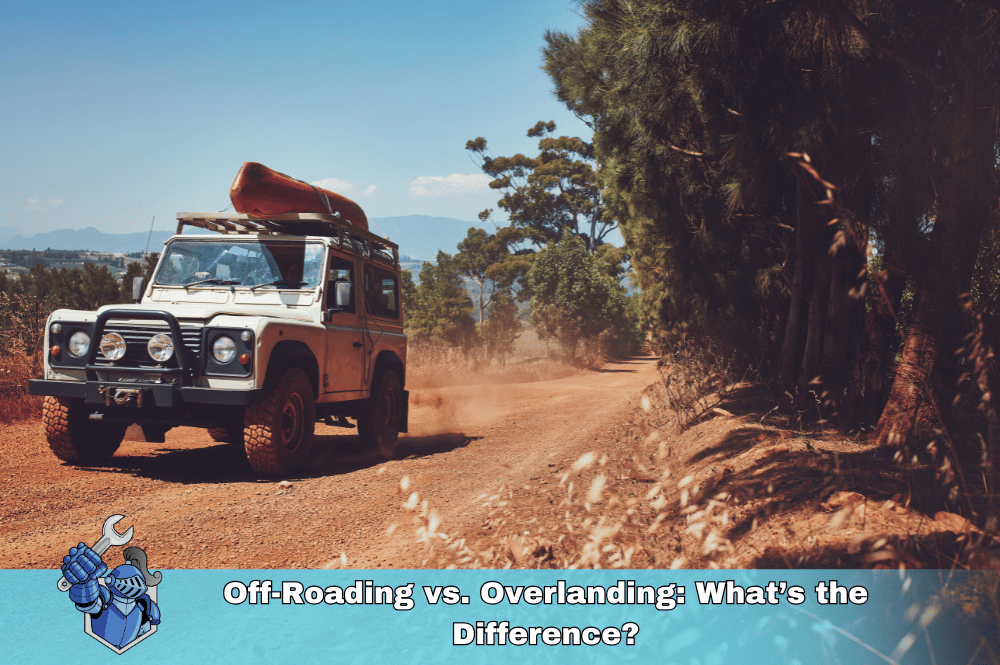 Off-Roading vs. Overlanding: What’s the Difference?
Off-Roading vs. Overlanding: What’s the Difference? Is Your Car a Ticking Time Bomb? The Unexpected Costs of Car Ownership
Is Your Car a Ticking Time Bomb? The Unexpected Costs of Car Ownership Nissan Frontier: Conquer Any Terrain in Style and Comfort
Nissan Frontier: Conquer Any Terrain in Style and Comfort Car Trouble? Your Insurance Might NOT Cover This!
Car Trouble? Your Insurance Might NOT Cover This! Extended Warranty Secrets: Unlocking Surprising Perks You Didn’t Know Existed!
Extended Warranty Secrets: Unlocking Surprising Perks You Didn’t Know Existed! The Car Repair Lottery: Are You Feeling Lucky?
The Car Repair Lottery: Are You Feeling Lucky? 'Tis the Season to Be Jolly... and Protected: Why an Extended Warranty is the Gift That Keeps on Giving
'Tis the Season to Be Jolly... and Protected: Why an Extended Warranty is the Gift That Keeps on Giving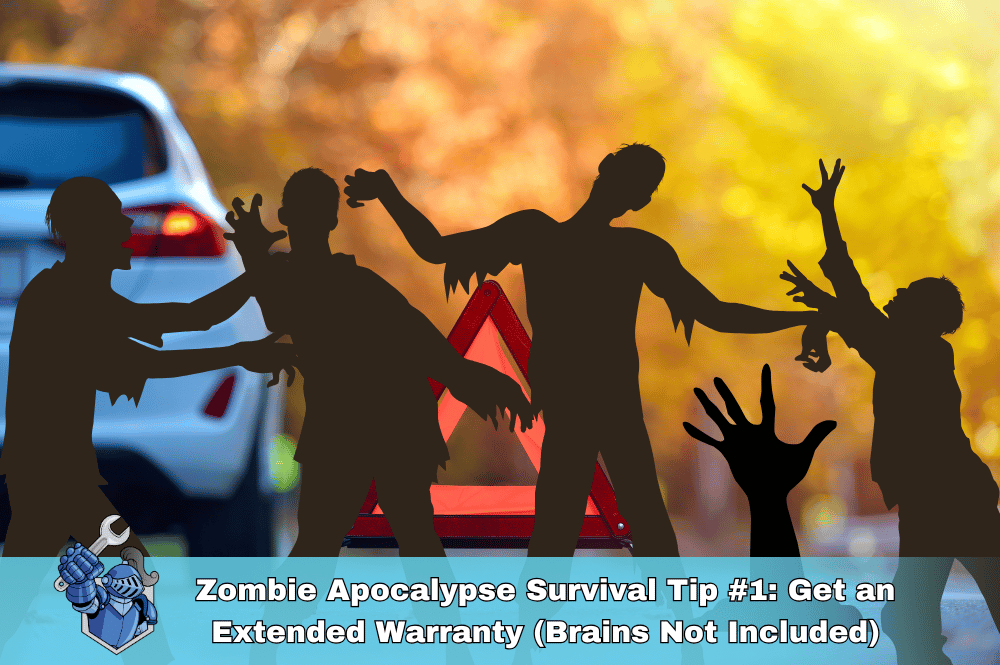 Zombie Apocalypse Survival Tip #1: Get an Extended Warranty (Brains Not Included)
Zombie Apocalypse Survival Tip #1: Get an Extended Warranty (Brains Not Included) That Annoying Hemi Tick: Why It Happens & How to Stop It
That Annoying Hemi Tick: Why It Happens & How to Stop It Ford F-150: This Ain't Your Grandpa's Pickup!
Ford F-150: This Ain't Your Grandpa's Pickup! Why Your Headlights Are Turning Yellow (And How to Prevent It)
Why Your Headlights Are Turning Yellow (And How to Prevent It) Car Scratches Driving You Crazy? 10 Steps to Fix Them Yourself
Car Scratches Driving You Crazy? 10 Steps to Fix Them Yourself 2015 Nissan Altima Warranty Expired? Get Extended Coverage Today!
2015 Nissan Altima Warranty Expired? Get Extended Coverage Today! Ford Power Steering Repair: Problems & Solutions
Ford Power Steering Repair: Problems & Solutions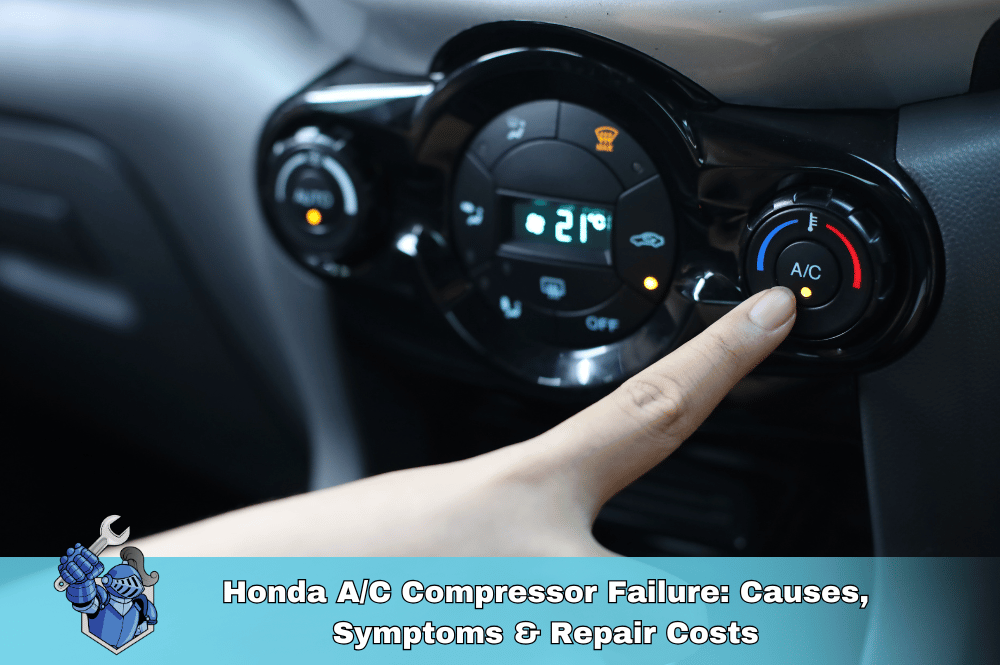 Honda A/C Compressor Failure: Causes, Symptoms & Repair Costs
Honda A/C Compressor Failure: Causes, Symptoms & Repair Costs Save on Car Repairs: NobleQuote vs. Toco Extended Warranty Review
Save on Car Repairs: NobleQuote vs. Toco Extended Warranty Review 2016 Jeep Wrangler Extended Warranty: Coverage & Options
2016 Jeep Wrangler Extended Warranty: Coverage & Options Electric Vehicles 101: What You Need to Know Before Making the Switch
Electric Vehicles 101: What You Need to Know Before Making the Switch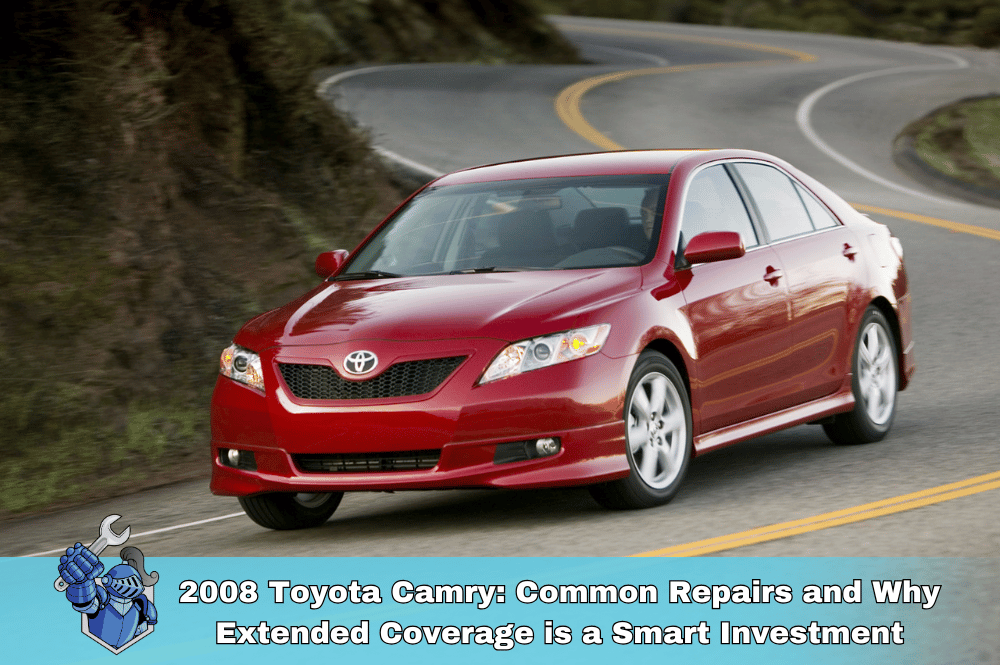 2008 Toyota Camry: Common Repairs and Why Extended Coverage is a Smart Investment
2008 Toyota Camry: Common Repairs and Why Extended Coverage is a Smart Investment 2015 Ford Explorer: Avoid Costly Repairs with the Right Extended Warranty
2015 Ford Explorer: Avoid Costly Repairs with the Right Extended Warranty Maximize Your Tesla Warranty: Smart Strategies for Extended Coverage
Maximize Your Tesla Warranty: Smart Strategies for Extended Coverage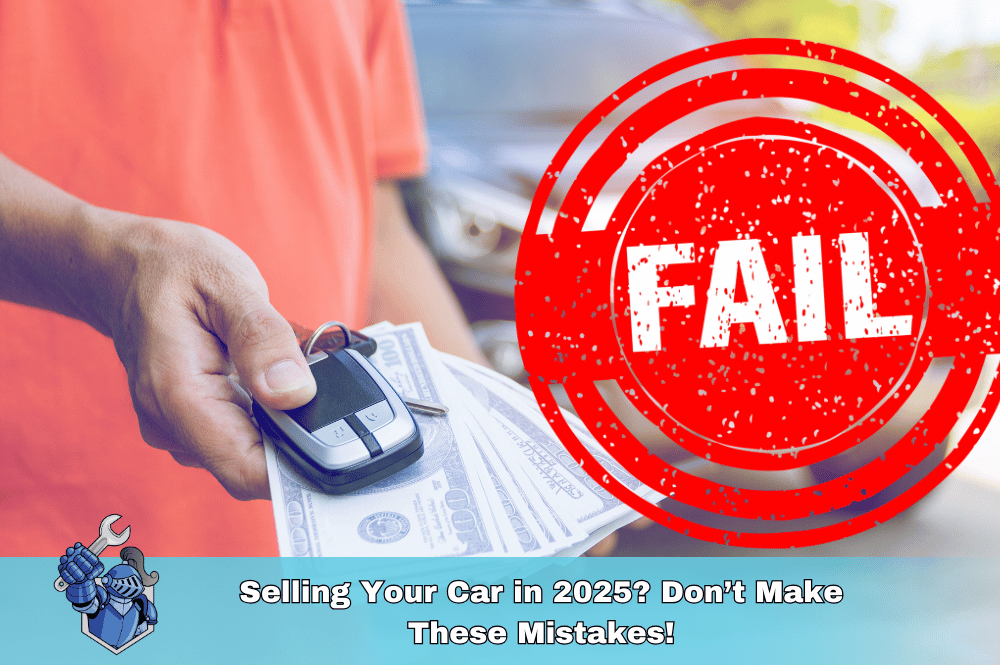 Selling Your Car in 2025? Don’t Make These Mistakes!
Selling Your Car in 2025? Don’t Make These Mistakes! Tesla Cybertruck: Overpriced or Over-the-Top Awesome?
Tesla Cybertruck: Overpriced or Over-the-Top Awesome?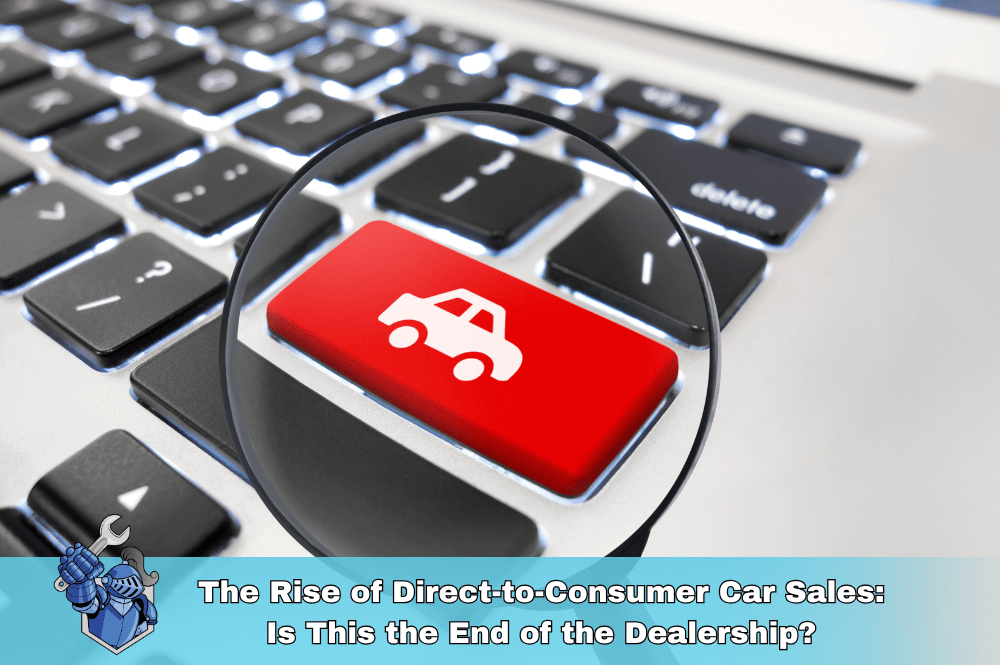 Skip the Dealership: The Rise of Online Car Buying
Skip the Dealership: The Rise of Online Car Buying Car Safety Technology: How Advanced Driver-Assistance Systems (ADAS) Are Changing the Game (and Your Insurance Rates)
Car Safety Technology: How Advanced Driver-Assistance Systems (ADAS) Are Changing the Game (and Your Insurance Rates) Why Can’t I Include My Warranty in My Car Financing? Answers to Your Top Questions
Why Can’t I Include My Warranty in My Car Financing? Answers to Your Top Questions What to Do When the Dealership Makes Warranty Cancellation a Hassle
What to Do When the Dealership Makes Warranty Cancellation a Hassle Boost Your EV's Range: Tips and Tricks for Maximum Mileage
Boost Your EV's Range: Tips and Tricks for Maximum Mileage Is Cruise Control REALLY Saving You Fuel? The Truth Revealed
Is Cruise Control REALLY Saving You Fuel? The Truth Revealed Bumper to Bumper Extended Warranty: What Does it Really Mean?
Bumper to Bumper Extended Warranty: What Does it Really Mean? Why Is My Car Heater Blowing Cold Air?
Why Is My Car Heater Blowing Cold Air? Level Up Your EV Charging Knowledge: A Guide to Charger Types
Level Up Your EV Charging Knowledge: A Guide to Charger Types Speaking Car: How to Clearly Communicate with Your Mechanic
Speaking Car: How to Clearly Communicate with Your Mechanic Selling Your Soul for an Extended Car Warranty (And Why They Keep Calling)
Selling Your Soul for an Extended Car Warranty (And Why They Keep Calling)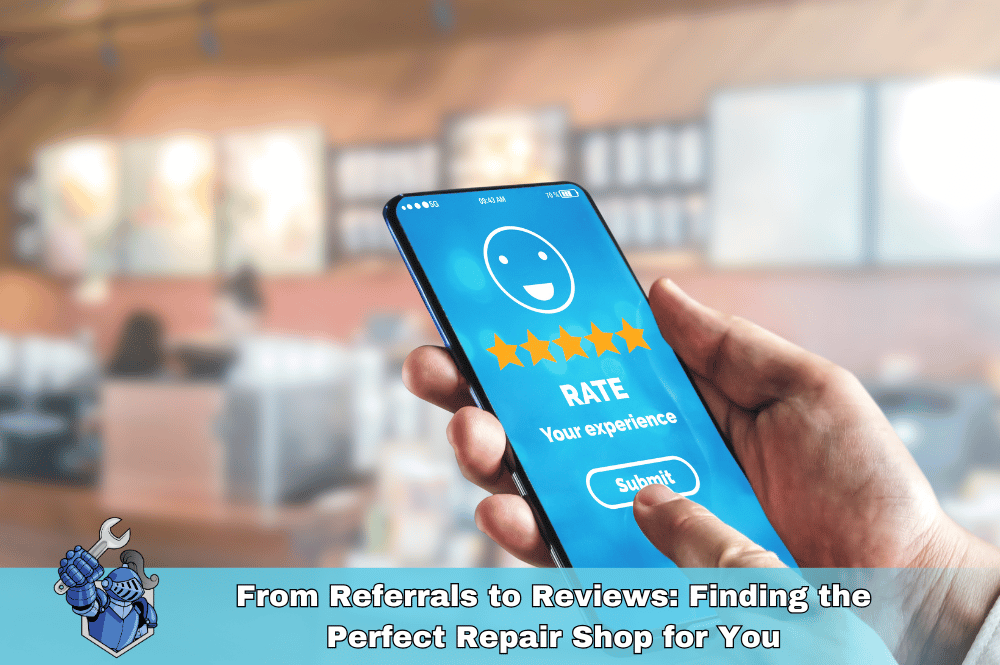 From Referrals to Reviews: Finding the Perfect Repair Shop for You
From Referrals to Reviews: Finding the Perfect Repair Shop for You Top 5 Most Expensive Car Repairs Your Manufacturer Warranty WON'T Cover
Top 5 Most Expensive Car Repairs Your Manufacturer Warranty WON'T Cover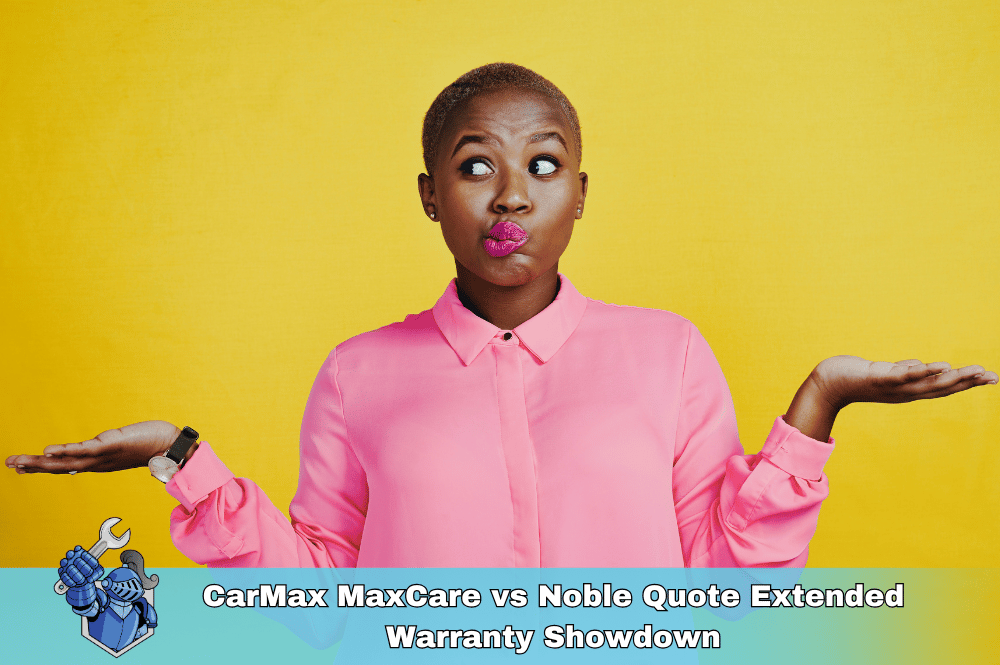 CarMax MaxCare vs. Noble Quote: Extended Warranty Showdown
CarMax MaxCare vs. Noble Quote: Extended Warranty Showdown Affordable Protection: Noble Quote vs. Autopom Warranty Pricing
Affordable Protection: Noble Quote vs. Autopom Warranty Pricing Avoid Costly Repairs: Noble Quote vs. Ox Car Care Warranties
Avoid Costly Repairs: Noble Quote vs. Ox Car Care Warranties Mercedes-Benz G-Class Review: On and Off-Road Performance, Features, and Price
Mercedes-Benz G-Class Review: On and Off-Road Performance, Features, and Price Don’t Buy a Honda Warranty Before Reading This! Noble Quote vs. HondaCare
Don’t Buy a Honda Warranty Before Reading This! Noble Quote vs. HondaCare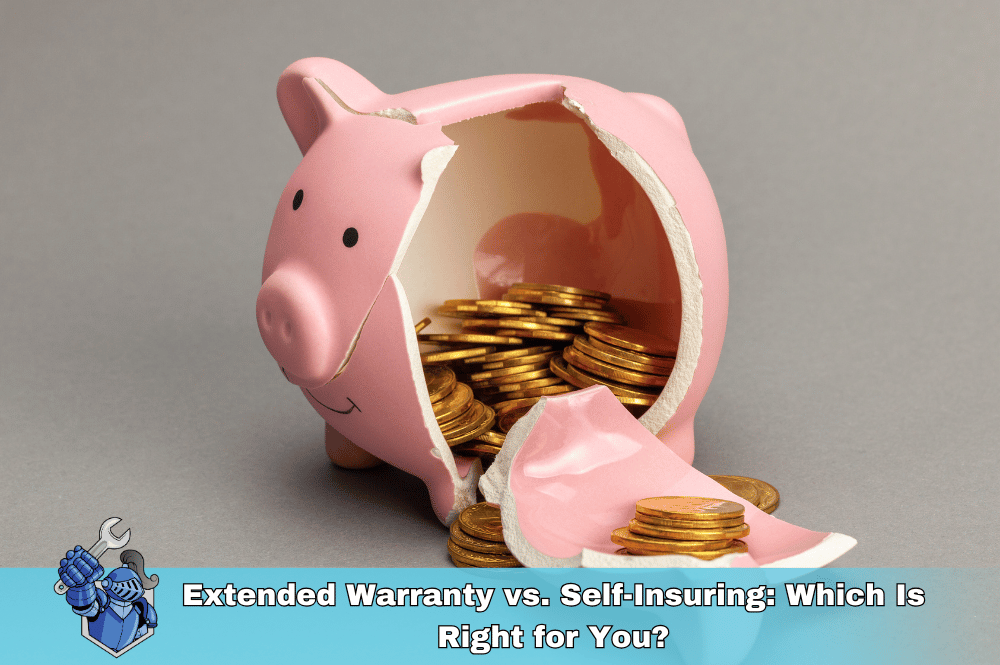 Extended Warranty vs. Self-Insuring: Which Is Right for You?
Extended Warranty vs. Self-Insuring: Which Is Right for You? Best Extended Warranty for Your Ford: Noble Quote or Ford Protect?
Best Extended Warranty for Your Ford: Noble Quote or Ford Protect? Charging Your Peace of Mind: Using a Credit Card to Buy a Car Warranty
Charging Your Peace of Mind: Using a Credit Card to Buy a Car Warranty Noble Quote vs. Omega Auto Care: Which Auto Warranty Is Right for You?
Noble Quote vs. Omega Auto Care: Which Auto Warranty Is Right for You? Cadillac Escalade: Mastering the Maintenance
Cadillac Escalade: Mastering the Maintenance Knight Rider vs. Back to the Future: A Battle of the 80s Icons
Knight Rider vs. Back to the Future: A Battle of the 80s Icons 10 Things You Didn't Know About James Bond’s Aston Martin DB5
10 Things You Didn't Know About James Bond’s Aston Martin DB5 Cupid's Got Horsepower: Rev Up Your Valentine's Day!
Cupid's Got Horsepower: Rev Up Your Valentine's Day!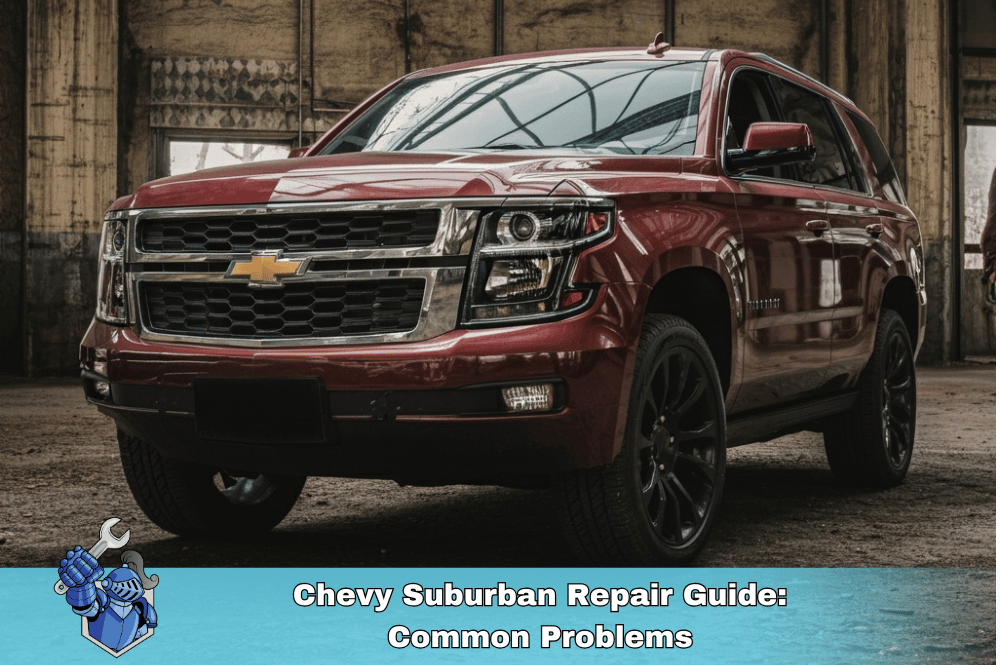 Chevy Suburban Repair Guide: Common Problems
Chevy Suburban Repair Guide: Common Problems The Greatest NASCAR Rivalries of All Time: On-Track Battles and Off-Track Drama
The Greatest NASCAR Rivalries of All Time: On-Track Battles and Off-Track Drama Beyond F1: Exploring the World's Most Extreme Racing Series
Beyond F1: Exploring the World's Most Extreme Racing Series 5 Car Problems That’ll Make You Wish You Had an Extended Warranty
5 Car Problems That’ll Make You Wish You Had an Extended Warranty If NASCAR Had Car Warranties: The Pit Stop Chaos You’d See
If NASCAR Had Car Warranties: The Pit Stop Chaos You’d See Forza: The Perfect Blend of Simulation and Arcade Fun
Forza: The Perfect Blend of Simulation and Arcade Fun The "New Car Smell" Doesn't Last Forever: Protecting Your Investment Long-Term
The "New Car Smell" Doesn't Last Forever: Protecting Your Investment Long-Term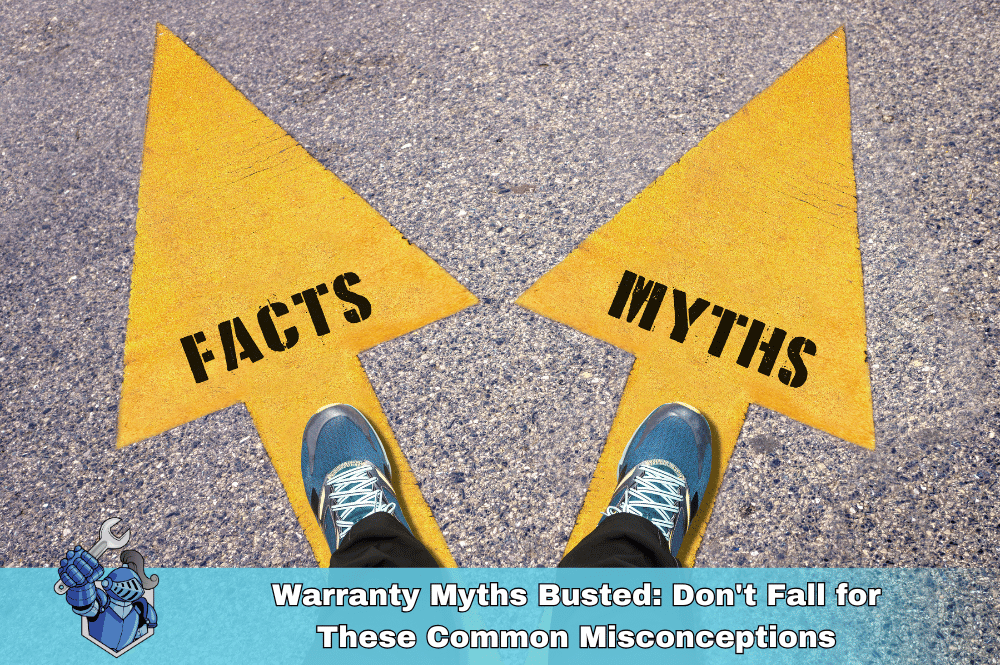 Warranty Myths Busted: Don't Fall for These Common Misconceptions
Warranty Myths Busted: Don't Fall for These Common Misconceptions We've Moved! Noble Quote's New Home at the Lake of the Ozarks
We've Moved! Noble Quote's New Home at the Lake of the Ozarks The Future of Racing: Electric Cars, Autonomous Vehicles, and Beyond
The Future of Racing: Electric Cars, Autonomous Vehicles, and Beyond Porsche Cayenne Engine Problems: What to Watch For
Porsche Cayenne Engine Problems: What to Watch For Supercar Dreams on a Budget: The Most Affordable Exotics for First-Time Buyers
Supercar Dreams on a Budget: The Most Affordable Exotics for First-Time Buyers The Most Common Car Breakdowns of 2025 (And How to Avoid Them)
The Most Common Car Breakdowns of 2025 (And How to Avoid Them) Chevy Malibu Ownership: Staying Ahead of the Repair Curve
Chevy Malibu Ownership: Staying Ahead of the Repair Curve Mazda Extended Warranty: Your Comprehensive Guide
Mazda Extended Warranty: Your Comprehensive Guide Protect Your Car & the Planet: Introducing NobleQuote's Green Choice Program
Protect Your Car & the Planet: Introducing NobleQuote's Green Choice Program Subaru Extended Warranty: Your Ultimate Guide
Subaru Extended Warranty: Your Ultimate Guide Ford Raptor Extended Warranty Guide: Conquer the Road with Confidence
Ford Raptor Extended Warranty Guide: Conquer the Road with Confidence Dodge TRX: King of the Off-Road
Dodge TRX: King of the Off-Road Kansas City Chiefs Players: You Won’t Believe What They’re Driving!
Kansas City Chiefs Players: You Won’t Believe What They’re Driving! Porsche GT3: Beyond the Numbers – The Soul-Stirring GT3 Experience
Porsche GT3: Beyond the Numbers – The Soul-Stirring GT3 Experience Ferrari vs. Lamborghini: A History of Innovation and Rivalry
Ferrari vs. Lamborghini: A History of Innovation and Rivalry Noble Quote: Driving with Confidence, Protected from Unexpected Repairs
Noble Quote: Driving with Confidence, Protected from Unexpected Repairs The Truck Owner’s Peace of Mind: Why Noble Quote Leads the Pack in Truck Repair Protection
The Truck Owner’s Peace of Mind: Why Noble Quote Leads the Pack in Truck Repair Protection Rivian R1S Review: Is This the Ultimate Electric Adventure SUV? (2025)
Rivian R1S Review: Is This the Ultimate Electric Adventure SUV? (2025) Protecting Your Ride Like Jalen Protects the Pocket: Cars, Eagles, and Smart Investments
Protecting Your Ride Like Jalen Protects the Pocket: Cars, Eagles, and Smart Investments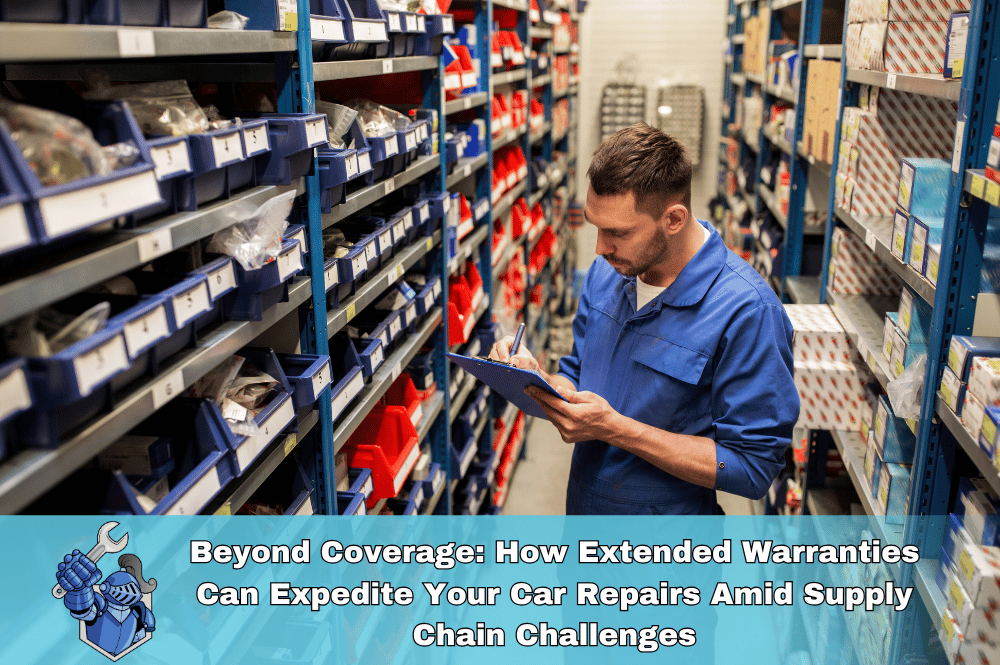 Beyond Coverage: How Extended Warranties Can Expedite Your Car Repairs Amid Supply Chain Challenges
Beyond Coverage: How Extended Warranties Can Expedite Your Car Repairs Amid Supply Chain Challenges Keeping vs. Selling: Weighing Your Car Options & the Value of an Extended Car Warranty
Keeping vs. Selling: Weighing Your Car Options & the Value of an Extended Car Warranty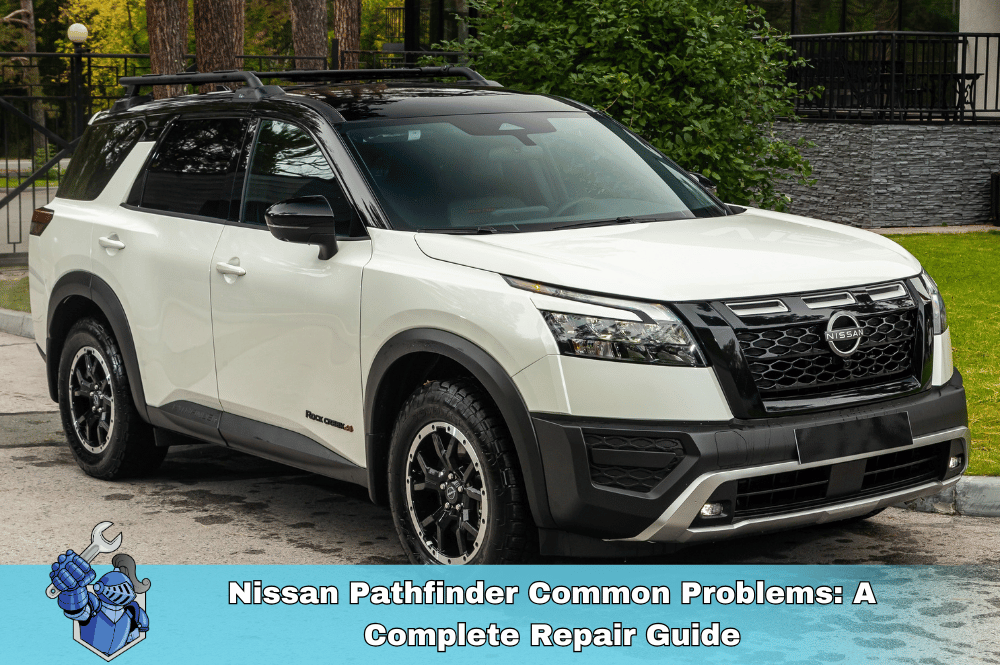 Nissan Pathfinder Common Problems: A Complete Repair Guide
Nissan Pathfinder Common Problems: A Complete Repair Guide Extended Car Warranty with Active Factory Coverage: Smart Move or Waste of Money?
Extended Car Warranty with Active Factory Coverage: Smart Move or Waste of Money? What Happens to My Vehicle Service Contract If I Sell My Car?
What Happens to My Vehicle Service Contract If I Sell My Car? DIY Oil Change: Do It Better Than the Pros (and Save Money!)
DIY Oil Change: Do It Better Than the Pros (and Save Money!) Vehicle Service Contracts for SUVs and Trucks: Protecting Your Investment
Vehicle Service Contracts for SUVs and Trucks: Protecting Your Investment Maximize Your Savings: Understanding Your Vehicle Service Contract Deductible Options
Maximize Your Savings: Understanding Your Vehicle Service Contract Deductible Options What to Do If Your Vehicle Service Contract Claim Is Denied
What to Do If Your Vehicle Service Contract Claim Is Denied Navigating the Online Vehicle Marketplace: Your Comprehensive Guide to Finding the Perfect Car or Truck
Navigating the Online Vehicle Marketplace: Your Comprehensive Guide to Finding the Perfect Car or Truck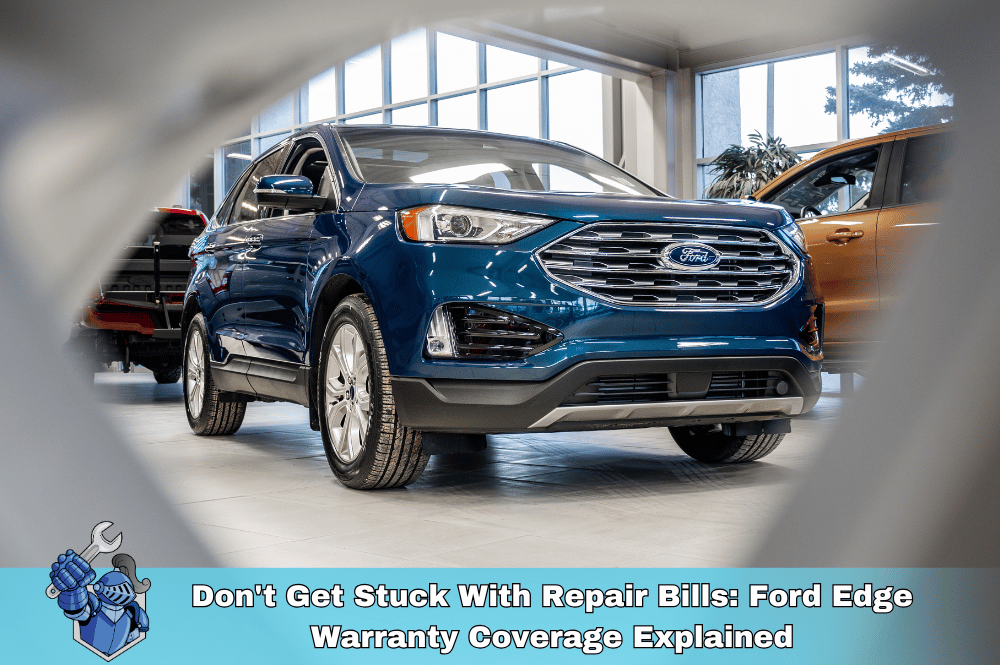 Don’t Get Stuck With Repair Bills: Ford Edge Warranty Coverage Explained
Don’t Get Stuck With Repair Bills: Ford Edge Warranty Coverage Explained Stop Paying for Potholes: The Smart Way to Protect Your Wheels and Tires
Stop Paying for Potholes: The Smart Way to Protect Your Wheels and Tires RV Road Trip Ready: Secure Your Adventures with Extended Warranty Coverage
RV Road Trip Ready: Secure Your Adventures with Extended Warranty Coverage Recession-Proof Your Ride: Why an Extended Car Warranty Makes Sense Now
Recession-Proof Your Ride: Why an Extended Car Warranty Makes Sense Now What is a Home Warranty and Do You Need One?
What is a Home Warranty and Do You Need One? NobleQuote: Best Auto Protection, Not Just the Oldest
NobleQuote: Best Auto Protection, Not Just the Oldest Kia Telluride Review: Unpacking the Features and the Real Cost to Own
Kia Telluride Review: Unpacking the Features and the Real Cost to Own Decoding Your Wallet: The Benefits of Using Cash and Credit Wisely
Decoding Your Wallet: The Benefits of Using Cash and Credit Wisely Bitcoin vs. Cash: A Head-to-Head Comparison of Features
Bitcoin vs. Cash: A Head-to-Head Comparison of Features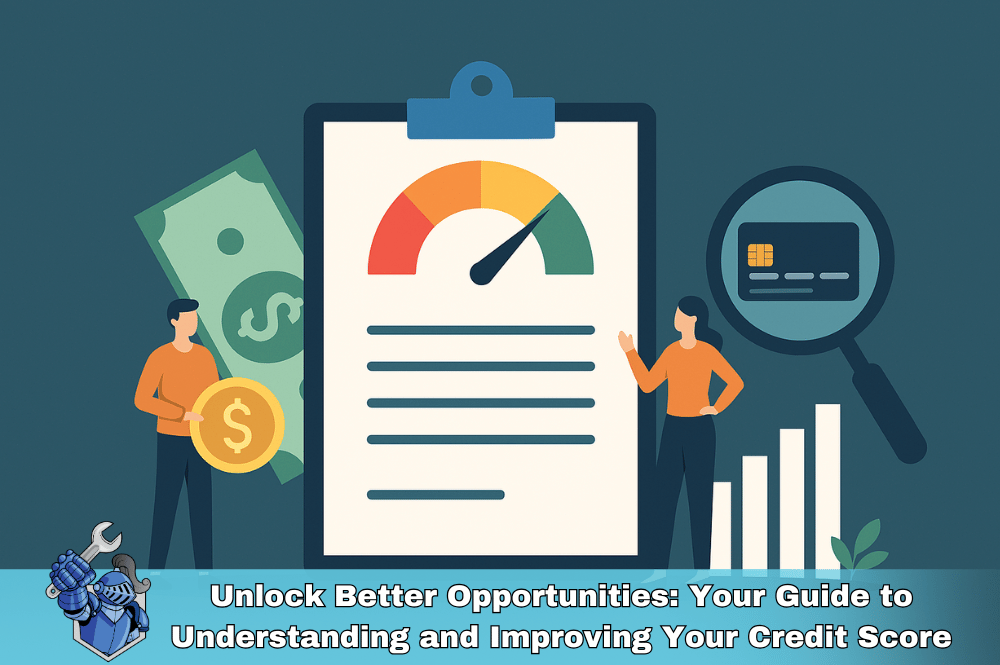 Unlock Better Opportunities: Your Guide to Understanding and Improving Your Credit Score
Unlock Better Opportunities: Your Guide to Understanding and Improving Your Credit Score Beyond the Hype: A Realistic Look at Hyundai Ioniq 5 Ownership Costs and Performance
Beyond the Hype: A Realistic Look at Hyundai Ioniq 5 Ownership Costs and Performance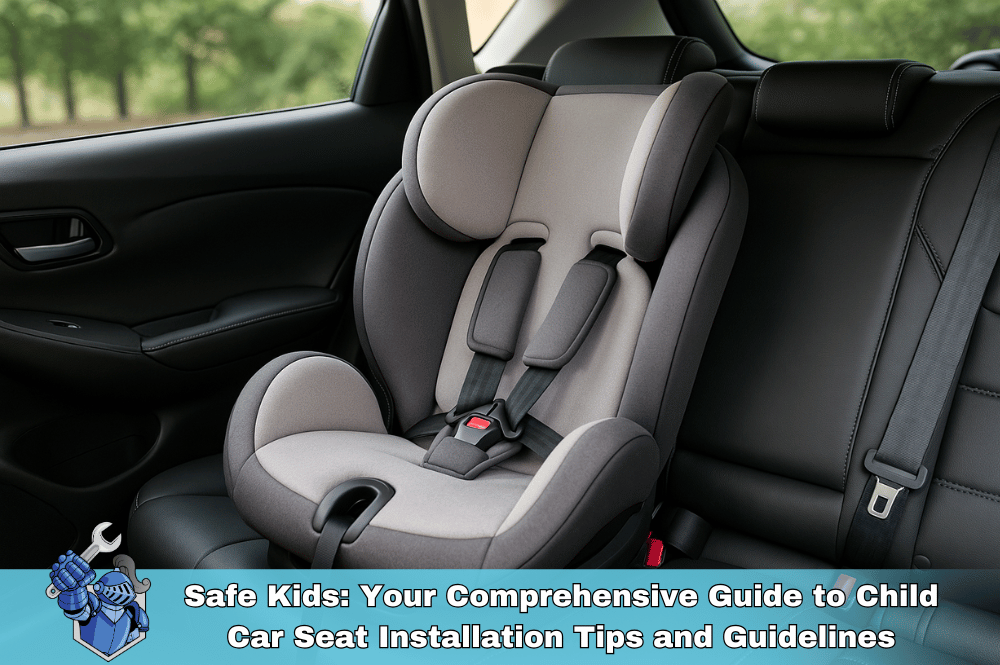 Safe Kids: Your Comprehensive Guide to Child Car Seat Installation Tips and Guidelines
Safe Kids: Your Comprehensive Guide to Child Car Seat Installation Tips and Guidelines Chevy Colorado: Unpacking the Features and the Real Cost of Ownership
Chevy Colorado: Unpacking the Features and the Real Cost of Ownership Don’t Let Tariffs Hike Your Bills: The Smart Way an Extended Warranty Saves You on Car Repairs
Don’t Let Tariffs Hike Your Bills: The Smart Way an Extended Warranty Saves You on Car Repairs Drive Smart, Save Smarter: Your Guide to Budgeting for Car Care
Drive Smart, Save Smarter: Your Guide to Budgeting for Car Care Tech Troubles Ahead? The Rising Costs of Modern Vehicle Repairs
Tech Troubles Ahead? The Rising Costs of Modern Vehicle Repairs The Downtime Trap: How Car Repairs Can Cost You More Than Just the Bill
The Downtime Trap: How Car Repairs Can Cost You More Than Just the Bill DIY Danger? The Financial Risks of Handling Car Repairs Yourself
DIY Danger? The Financial Risks of Handling Car Repairs Yourself Smart Buyer’s Guide: Ford F-250 Review and Long-Term Ownership Costs (2022–2024)
Smart Buyer’s Guide: Ford F-250 Review and Long-Term Ownership Costs (2022–2024)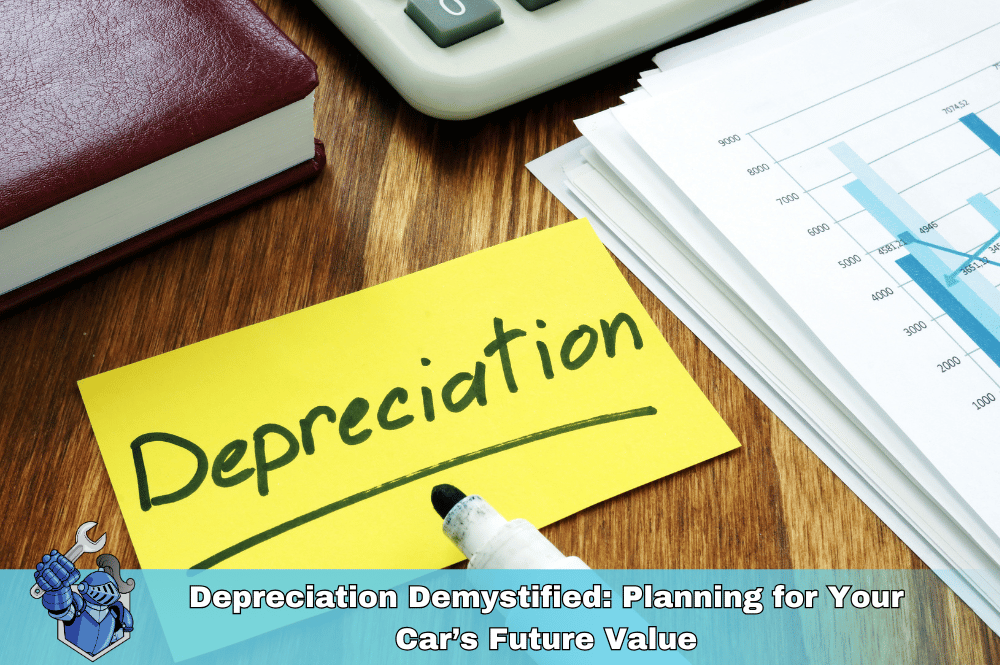 Depreciation Demystified: Planning for Your Car’s Future Value
Depreciation Demystified: Planning for Your Car’s Future Value New vs. Used: A Financial Showdown for Your Next Vehicle
New vs. Used: A Financial Showdown for Your Next Vehicle Blockchain Basics: The Technology Behind Cryptocurrencies
Blockchain Basics: The Technology Behind Cryptocurrencies Living with a Legend: The Hidden Costs of Dodge Challenger Hellcat Ownership
Living with a Legend: The Hidden Costs of Dodge Challenger Hellcat Ownership Beyond Self-Driving: OpenAI and the Next Generation of Automotive Intelligence
Beyond Self-Driving: OpenAI and the Next Generation of Automotive Intelligence The Crypto Long Game: Proven Strategies for Building Generational Wealth
The Crypto Long Game: Proven Strategies for Building Generational Wealth Understanding Car Leasing: A Complete Guide for First-Timers
Understanding Car Leasing: A Complete Guide for First-Timers Family First, Finances Second? The Real Cost of Owning a Toyota Highlander
Family First, Finances Second? The Real Cost of Owning a Toyota Highlander Drive Away Richer? Credit Card Secrets for Smart Car Buying
Drive Away Richer? Credit Card Secrets for Smart Car Buying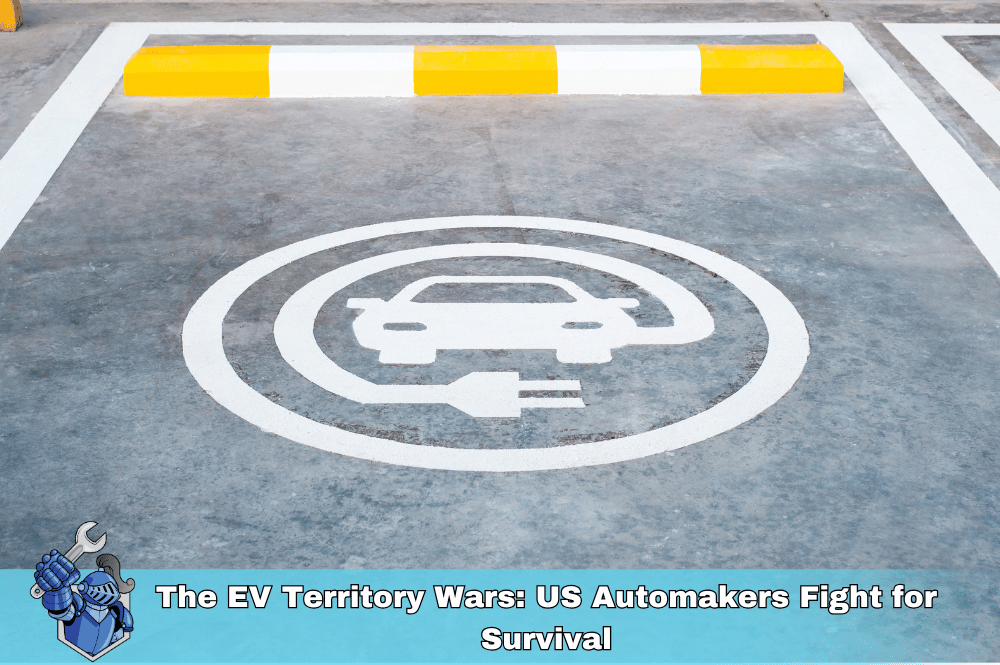 The EV Territory Wars: US Automakers Fight for Survival
The EV Territory Wars: US Automakers Fight for Survival From Solid Axle to Supercar: The Ultimate Guide to Every Corvette Generation (C1–C8)
From Solid Axle to Supercar: The Ultimate Guide to Every Corvette Generation (C1–C8)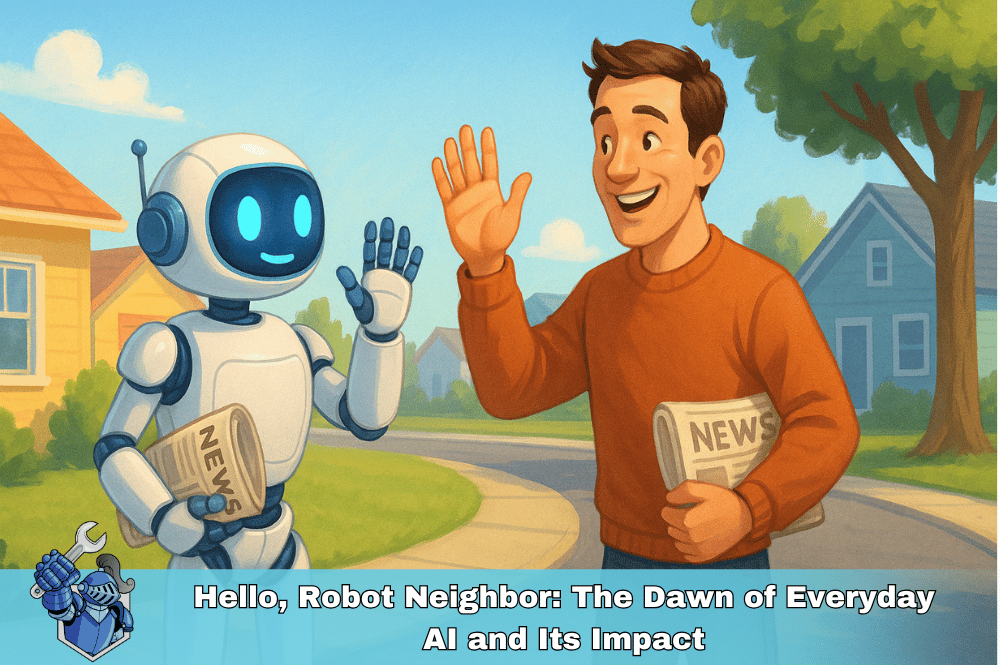 Hello, Robot Neighbor: The Dawn of Everyday AI and Its Impact
Hello, Robot Neighbor: The Dawn of Everyday AI and Its Impact Beyond the Movie: The Gritty Truth of Ford vs. Ferrari
Beyond the Movie: The Gritty Truth of Ford vs. Ferrari Slash Your Car Insurance Bills: Expert Tips You Need Now
Slash Your Car Insurance Bills: Expert Tips You Need Now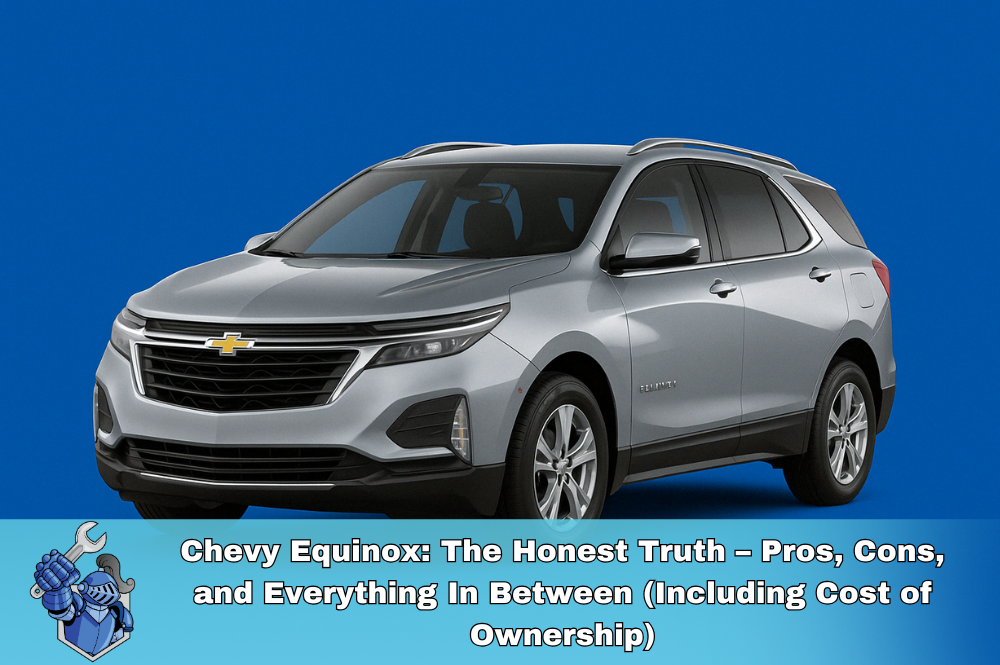 Chevy Equinox: The Honest Truth – Pros, Cons, and Everything In Between (Including Cost of Ownership)
Chevy Equinox: The Honest Truth – Pros, Cons, and Everything In Between (Including Cost of Ownership) Decoding Auto Insurance: Your Easy-to-Understand Guide
Decoding Auto Insurance: Your Easy-to-Understand Guide Pessada Holdings: BBB A+ Rated Excellence
Pessada Holdings: BBB A+ Rated Excellence Save More, Stress Less: Family Budgeting Tips That Work
Save More, Stress Less: Family Budgeting Tips That Work Slate’s Electric Entry: A Deep Dive into the New Automotive Truck
Slate’s Electric Entry: A Deep Dive into the New Automotive Truck Affordability Crisis: How Rising Costs are Putting the Brakes on Car Sales
Affordability Crisis: How Rising Costs are Putting the Brakes on Car Sales The Extended Warranty Pitch: What Dealers Don't Always Tell You
The Extended Warranty Pitch: What Dealers Don't Always Tell You Unlock Your Dream Ride: The Ultimate Guide to Scoring a New Car Deal
Unlock Your Dream Ride: The Ultimate Guide to Scoring a New Car Deal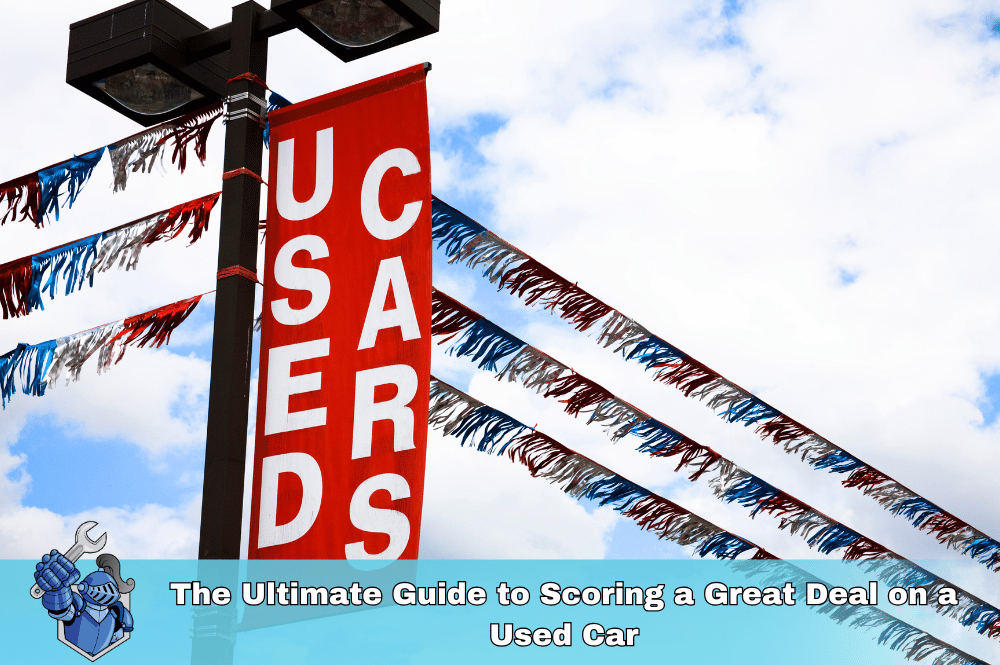 The Ultimate Guide to Scoring a Great Deal on a Used Car
The Ultimate Guide to Scoring a Great Deal on a Used Car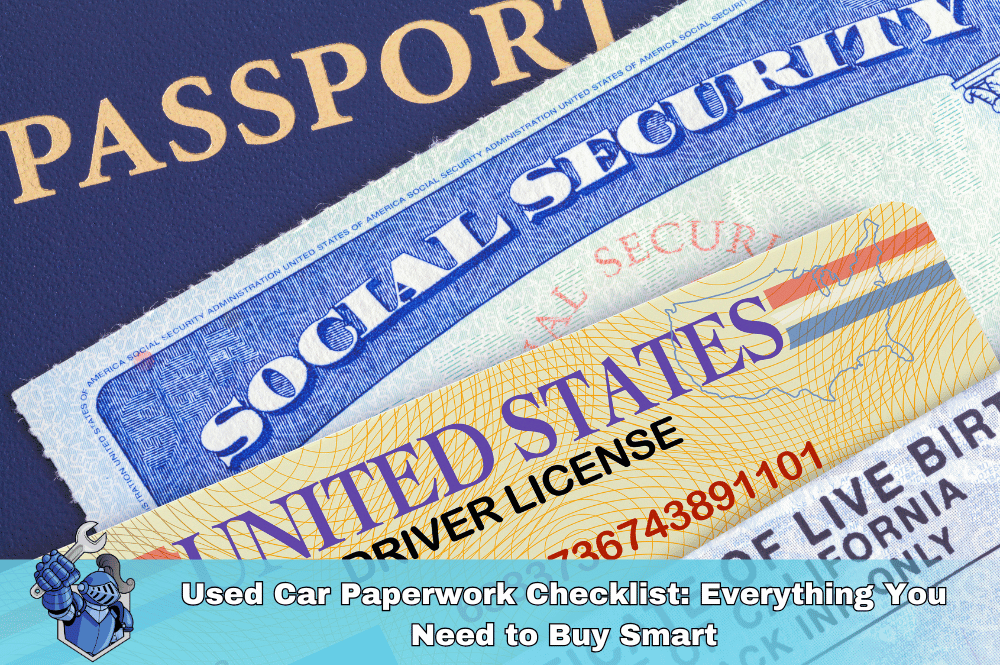 Used Car Paperwork Checklist: Everything You Need to Buy Smart
Used Car Paperwork Checklist: Everything You Need to Buy Smart Decoding “As-Is”: Your Essential Guide to Buying a Used Car
Decoding “As-Is”: Your Essential Guide to Buying a Used Car Cars.com: Your All-in-One Guide to Buying, Selling, and Owning Cars
Cars.com: Your All-in-One Guide to Buying, Selling, and Owning Cars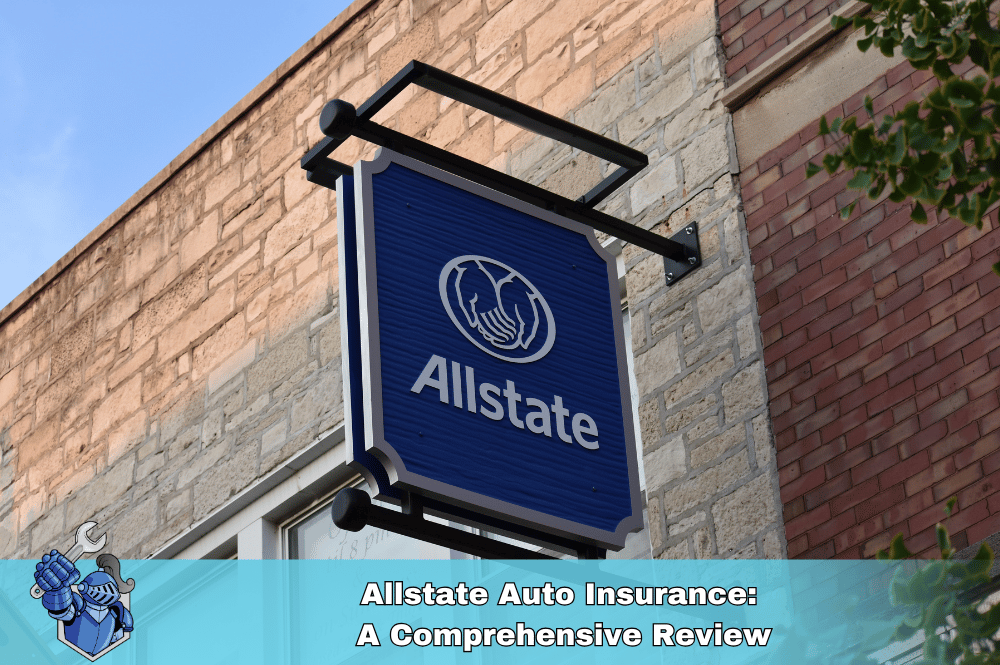 Allstate Auto Insurance: A Comprehensive Review
Allstate Auto Insurance: A Comprehensive Review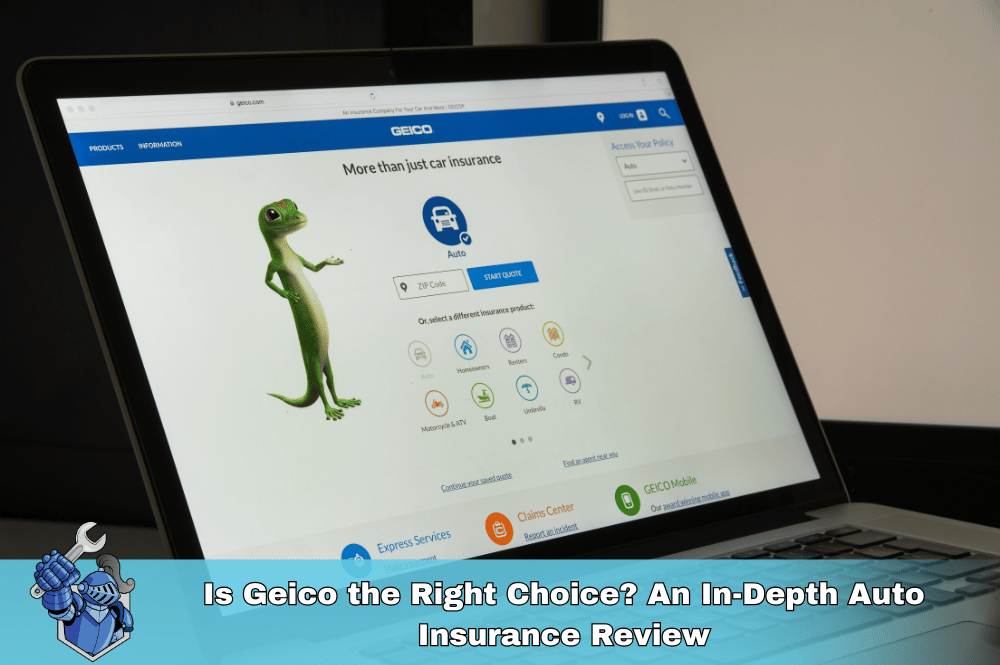 Is Geico the Right Choice? An In-Depth Auto Insurance Review
Is Geico the Right Choice? An In-Depth Auto Insurance Review

